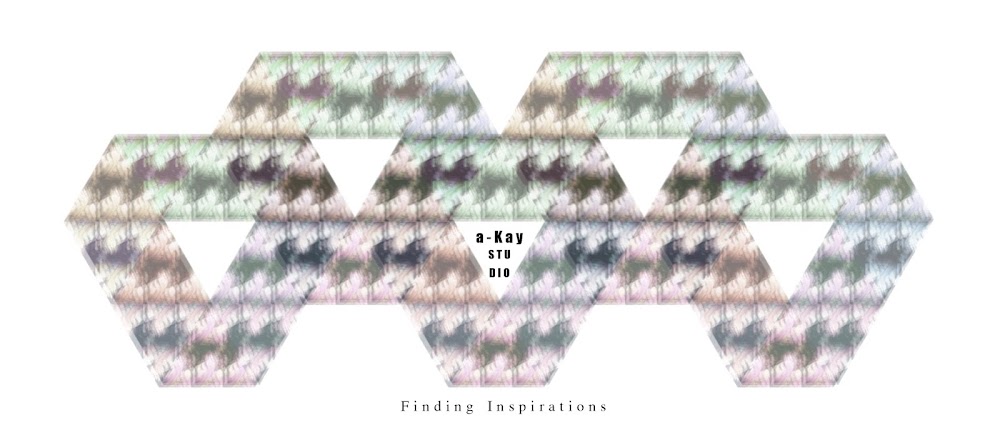Friday, October 25, 2013
Wednesday, October 23, 2013
ทำนายดวงด้วยไพ่ป๊อก 21 ใบ
 | ||||||||
 | 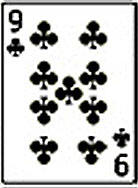 |  |  |  | ||||
 |  |  | 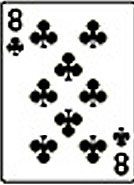 |  |  |  |  | 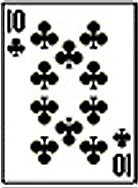 |
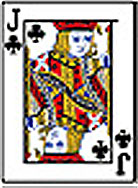 |  |  |  |  | ||||
 |


สิ่งที่จะเกิดขึ้นเร็วๆนี้
เป็นไพ่แห่งเงินทอง ของมีค่า และทรัพย์สิน หรือมรดกในรูปแบบต่างๆ ไพ่เอซข้าวหลามตัดบ่งบอกถึงความโชคดีในเรื่องของความรัก การตกลงครองคู่อยู่ร่วมกัน หรือการกระชับความสัมพันธ์ให้ลึกซึ้งยิ่งขึ้น ไพ่ใบนี้ยังอาจนำมาซึ่งข่าวดีหรือโอกาสดีๆที่จะมีผลสำเร็จงดงามต่อไป และ เป็นตัวแทนของหนุ่มใหญ่ร่างสูงผิวค่อนข้างขาว เป็นคนมาดเนี๊ยบ แต่งตัวดี มีความละเอียดอ่อน จู้จี้เล็กน้อย ไม่ค่อยยอมฟังความคิดใคร ชอบดูหนังหรือฟังเพลง

การคาดหวัง
เป็นตัวแทนของชายวัยรุ่นถึงวัยหนุ่มกลางคน หุ่นสูง ผิวดำแดง เป็นคนปัญญาดี มีไหวพริบ รอบคอบ ดื้อเงียบๆแต่ก็สุภาพไม่ก้าวร้าวใคร และ เป็นตัวแทนของหนุ่มใหญ่ร่างใหญ่ ผิวค่อนข้างคล้ำ เป็นคนดีมีศีลธรรม ไม่ชอบพูดจาอ้อมค้อม ชอบช่วยเหลือคน รักเดียวใจเดียว มีนิสัยบางอย่างแปลกแยกแตกต่างจากคนอื่น

อุปสรรคและสิ่งที่ต้องพบเจอ
เป็นไพ่แห่งความเหน็ดเหนื่อย การแข่งขันแย่งชิง ความผิดหวังจากการถูกทรยศหรือคดโกง ไพ่ 8 ดอกจิกยังบอกถึงการติดต่อเจรจาที่สำเร็จด้วยดี การได้รับข่าวดี และพบช่องทางดีที่ยังมีแนวโน้มจะให้ผลดีต่อตนในวันหน้า แต่ให้ระวังการติดต่อประสานงานที่อาจผิดพลาดหรือเสียเปรียบเขา และ เป็นไพ่แห่งปัญหาและเคราะห์ร้าย ความผิดพลาด ติดขัด ความวุ่นวาย และจิตใจที่เป็นกังวล ไพ่ 9 โพดำมักจะเป็นสัญญาณเตือนช่วงเวลาที่แสนยุ่งยากในหลายๆด้านที่สามารถทำให้หมดความสุขและเสียความมั่นใจไปได้มากพอสมควร อาจเป็นเรื่องขัดแย้งในบ้าน ทำงานผิดพลาด เจ็บป่วย เสียทรัพย์ เกิดอุบัติเหตุ ดวงชะตามัวหม่น ต้องระวังตนให้มาก จะมีการเปลี่ยนแปลงที่หลีกเลี่ยงไม่ได้ มีเรื่องน้อยใจผิดหวังแบบตั้งตัวไม่ทัน

สิ่งทีคุณอยากจะรู้หรืออะไรที่ควรทำ
เป็นไพ่แห่งความอยู่ดีมีสุข โชคทางการเงิน ข่าวดีๆโอกาสดีๆและความคิดริเริ่มสร้างสรรค์ใหม่ๆ ไพ่ เอซ ดอกจิกมักจะบอกถึงวี่แววแห่งความสำเร็จ การเปลี่ยนแปลงที่ดี พลังกายเข้มแข็ง มีไฟลุกโชนเต็มที่ นอกจากนี้ยังบอกถึงความพึงพอใจในความเป็นอยู่หรืออาจมีเรื่องให้ชื่นใจภายในบ้านอีกด้วย และ เป็นไพ่แห่งความสัมพันธ์ที่มีปัญหา อาจเกิดการแตกหักกับพี่น้องหรือเพื่อนสนิท นอกจากความแตกแยก และความบาดหมางแล้วให้ระวังเรื่องของการตัดสินใจที่ผิดพลาดด้วย เพราะจะเกิดผลเสียหายกับการงานหรือกระทบต่อความสุขสบายใจ ถ้าจะเกี่ยวข้องกับเรื่องของเอกสารสัญญาและกฎหมายต้องรอบคอบให้มาก ไพ่ 8 โพดำมักบอกถึงสถานการณ์ที่ต้องเครียดและเสียใจพอสมควร

สิ่งที่มีอิทธิพลและความเป็นไปได้
เป็นตัวแทนของชายผิวขาว รูปร่างไม่บอบบางนัก เป็นชายหนุ่มวัยหนุ่มน้อยถึงวัยกลางคนผู้รักอิสระ มีหัวใจเสรี มีความเป็นเพื่อนที่น่ารักในบางครา ดื้อดึงถือทิฐิในบางครั้ง และ เป็นไพ่แห่งความเปลี่ยนแปลงขยับขยาย อาจเป็นเรื่องงาน หรือที่อยู่อาศัย หรือเปลี่ยนความคิดอะไรบางอย่างก็เป็นได้ ไพ่ 7 โพแดงยังหมายถึงใครบางคนที่อาจเข้ามาตีสนิท เอาอกเอาใจเราแต่อาจหวังประโยชน์บางอย่าง นอกจากนี้ยังมีเกณฑ์การเดินทางด้วย สิ่งที่พึงระวังคือความขัดแย้งภายในบ้านและการไว้วางใจคนอื่นTuesday, October 22, 2013
Best Daughter
ให้เธอ ฉันร้องให้เธอก่อนนอน
ฉันเดิน ตัวฉันเดินไปกับเธอ
ฉันเพ้อและคิดเรื่องราวเดิมเดิมทั้งวัน
ฉันมองแค่ภาพเธอ
อยากจะขอ เพียงเค่รอยยิ้มที่ได้กลับมา
อยากจะขอ ให้มีความหมายแค่ช่วงเวลา
ไม่เรียกร้อง ให้เธอมองเห็นขอเเค่สบตา
ที่เธอถาม ว่าที่ให้ฉันน้อยไปใช่มั้ย
อยากให้รู้ว่าเรื่องที่ฉันทำอยู่
อยากให้รู้ว่าเรื่องที่เธอให้ไม่น้อยไป
ไม่น้อยเกินไปเลย
ฉันจะไม่ขอสำคัญกว่านี้
เพราะมีแค่นี้ก็คงไม่น้อย
หากเธอทุกข์ตัวฉันก็คงต้องทุกข์เหมือนกัน
ฉันอยากจะให้เธอ
อยากจะขอ เพียงเค่รอยยิ้มที่ได้กลับมา
อยากจะขอ ให้มีความหมายแค่ช่วงเวลา
ไม่เรียกร้อง ให้เธอมองเห็นขอเเค่สบตา
ที่เธอถาม ว่าที่ให้ฉันน้อยไปใช่มั้ย
อยากให้รู้ว่าเรื่องที่ฉันจะบอก
จะไม่ขอและจะไม่เรียกร้องให้มากไป
ไม่ขออะไรเลย
http://www.elivetv.in/download/lagu/fzOGrBCG/youth-brush/
Monday, October 21, 2013
ipophobia: a Transatlantic Concept?
S°ren Askegaard, Odense University
Anne F. Jensen, Odense University
Douglas B. Holt, University of Illinois
[ to cite ]:
S°ren Askegaard, Anne F. Jensen, and Douglas B. Holt (1999) ,"Lipophobia: a Transatlantic Concept?", in NA - Advances in Consumer Research Volume 26, eds. Eric J. Arnould and Linda M. Scott, Provo, UT : Association for Consumer Research, Pages: 331-336.
S°ren Askegaard, Anne F. Jensen, and Douglas B. Holt (1999) ,"Lipophobia: a Transatlantic Concept?", in NA - Advances in Consumer Research Volume 26, eds. Eric J. Arnould and Linda M. Scott, Provo, UT : Association for Consumer Research, Pages: 331-336.
Fat has become a central issue in structuring how people in industrialized countries pursue nourishment, health, and aesthetics in their food consumption. Fat is never experienced as an objective quality of food, but, rather, is shaped by cultural understandings that construct how fat is understood and experienced. Thus, understanding fat consumption requires comparative research, which reveals the taken-for-granted culture of fat consumption. Based on a series of in-depth interviews, we analyze the meanings of fat as expressed in the tastes and consumption practices of Danish and American women. We analyze these interviews with reference to the general food culture of the respective societies and the prevailing attitudes to fat. We will also discuss more fundamental differences between the idea of fat and fat consumption in the two continents.
INTRODUCTION
Modern societies are 'lipophobic’ societies: they are scared of fat, Fischler (1990) asserts. In the American context, the growing emhasis on dieting since the early 20th century has been rooted in a complex constellation of factors: dieting as an ascetic moral counterweight to growing consumerism (Stearns 1997), the medical discourse emphasizing the connection between overweight and health problems, an alliance between medical science and an emerging life insurance industry (Fischler 1990), shifts in sexuality and fashion, a growing individualism, and a general celebration of youth as a value and changing social and economic demands of a more fast-paced lifestyle. As noted by Klein (1996), fat is (seen as) ugly, unhealthy, and lethargic in a world that valorizes beauty as thinness, health as thinness, and energy. Since the end of the 1960s, various governments have addressed eating patterns in their national health policies and prompted campaigns in order to change the population’s eating behavior in a more 'healthy’ direction. While there are many viable viewpoints as to what is healthy, the dominant (i.e., Western) public policy discourse worldwide points to fat consumption as one of the major villains in public health policies. "Fat is bad" has become one of the most widespread and commonly recognized dogmas of our daily consumer lives in the course of the 20th century.
In most countries in the Western hemisphere, several processes linked to lipophobia can be observed. People in both Europe and the United States increasingly find themselves overweight, whether or not they are in strictly medical terms (Fischler 1990). The average weight of people in the Western world is, in fact, increasing. From 1980 to 1991 the average weight in America increased by 8 % in spite of the health and fitness craze hitting the country in the same period (Klein, 1996). With advances in food industrial technologies, the market for fat free, fat reduced or otherwise low calorie products has boomed over the last couple of decades. The ideal body image getting further distant from the average size may be seen as the cause of the growth in pathological eating disorders like anorexia or bulimia (Fischler 1990; Warde, 1997). Thus, the generalized lipophobia, linked to the predominant beauty ideal of the fashion and beauty product businesses, has been seen as important contributory factors to the proliferation of pathological eating disorders found in all ranges and populations in the Western world, but most commonly among young females.
DIFFERENCES IN LIPOPHOBIA
Western societies are all to a greater or smaller extent lipophobic. But there are large differences among various cultural groups, both nationally and cross-nationally. Fischler (1990), Klein (1996), and Stearns (1997) all report significant differences between the American ethnic subgroups both concerning average weight, ideal body images and, hence, attitudes to fat consumption. The highest proportions of overweight people in the US are found among black women (49.5 %) and Mexican-American women (47.9 %). On the other hand, lipophobia is not directly linked to weight issuesBa survey among Arizona teenagers showed that 90 % of the white teenage girls were dissatisfied with their bodies whereas 70 % of the black girls were satisfied and showed no interest in dieting. White girls emphasized thinness, black girls shapeliness (Klein 1996). Fischler (1990), likewise, reports how Puerto Ricans find female bodies sexually desirable and attractive which are qualified as obese by the white sub-population.
Stearns (1997) argues that in the course of the 20th century and especially during the post-war period "body shape and discipline [...] became a new class divide between the virtuous and the unworthy" (p. 149). On both sides of the Atlantic Ocean, lipophobic attitudes and behavior are associated with an upscale and urban lifestyle, whereas a more rural environment means less focus on slenderness and weight. Klein (1996) concurs in a more blunt way: the richer you are, the more likely you are to be thin. This is in contrast to the historical realities o most societies, where more weight signified more power and more control over and access to nutritional resources. Fischler (1990), echoing Foucault, attributes the shift to the growing individualism, changing the emphasis from social power relations to individual control over one’s own body. Moreover, Fischler argues that the relations may just have shifted from the single country to the global society. Today the rich part of the world is the historically "fat person" in contrast to the "skinny" poorer part of the world.
Finally, it is important to note that there are important gender differences in these images of body and fat, and that the lipophobic social judgments and processes are more manifest, profound and constraining for women than for men (Fischler 1990). This difference may be more pronounced in Europe than in the United States. In a study of consumer desires, North American men and women were reported to desire better, more ideal bodies, whereas this was true almost exclusively for women in Europe (Belk, Ger and Askegaard 1997). On the other hand, Stearns (1997) suggests that men have been captured by lipophobia more deeply than the "sound and fury" of the much debated and highly visible role of women’s magazine and female beauty ideals seems to imply. In fact, men have from the early period of lipophobia been the main target of the medical crusade against fat and overweight in both France and the US (Stearns 1997).
The imagery and consumption patterns attached to lipophobia seems to be spreading globally, for example, to the Asian "tiger economies". [Reported in Los Angeles Times. Source: http//www.pencomputing.com/dim/news/asia.html] But even though there may be a global lipophobic tendency, it is not without counter trends, as evidenced by the stressing of indulgence in today’s public food discourses (Warde 1997). Furthermore, there are national differences in the discourses of the issues of health and indulgence, gastronomy and nutrition, beauty and slenderness (Fischler 1990). One of the predominating stereotypes has it that Americans are more subject to various nutritional control systems than Europeans, watching not only fat intake, but also cholesterol, sodium and other substances reportedly damaging to the health in larger quantities, and engaging in a meticulous "nutritional engineering" (Fischler 1990). The question is: Is the Western European lipophobia a sub-titled version of the American one, just as the European modernity has been seen as the sub-titled, or over-dubbed, version of American modernity? (Baudrillard 1986)
DESIGN AND METHOD OF THE STUDY
To investigate cross-continental differences in the consumption of fats, we use a poststructuralist approach to life style to theoretically ground our analysis (Holt 1997). This approach is based on four assumptions. First, consumption meanings, rather than being based in universal structural systems, are linked to consumption practices in particular local contexts. Secondly, meanings of cultural objects are intertextually linked with meanings of other cultural objects in a historically constituted system. Thirdly, there is not one but a multiplicity of such meaning systems available for the single social actor for constructing and negotiating the meaning of the cultural object in a particular situation. And finally, given this openness and historicity of the meaning construction, meanings are inherently unstable and situational, depending on which linkages to other meanings are used in a given context. Thus, we are aware that our results are dependent on the particular social and temporal context in which they have been created. We cannot make any large-scale generalizations based on fifteen depth interviews in each country. But we use the results to draw one possible and plausible picture of the role of fat and fat consumption in the daily consumption patterns of American and Danish consumers, respectively.
The study was carried out in a small city in a rural region of the Northeastern United States (app. 125.000 residets) and a similar sized city in a more urban region of Denmark (app. 180.000 residents). Assuming a correlation between rural environment and more traditional and, hence, less lipophobic eating patterns, this would suggest a bias in favor of higher lipophobia in the Danish sample. As we shall see, this was not the case, giving further support to the cross-cultural differences discussed below.
In each country, 15 women between the ages of 30 and 50 years were randomly selected from local phonebooks and interviewed personally about their food cultures in general and their consumption of cooking fats in particular. A purely female sample was selected both on the basis of the need to include general food and cooking habits in the investigation and because of the already mentioned differences in the background of lipophobia for the two sexes. Furthermore, due to the social class difference discussed above, the informants were screened for income level and our sample includes only women representing income households in the middle three quintiles (roughly working class through middle class). The interviews were of an average duration of 1 1/2B2 hours.
Based on these interviews, the consumption meanings of fat in Denmark and the United States were analyzed. Two basic themes emerged from this analysis, one concerning food consumption in general and one with a special focus on the perceptions and usage of fat in food in general and more specifically cooking fats (oil, butter, margarine,..). The former part of the interviews contained discussions of shopping habits, preparation schemes, consumption schedules and consumption rituals, in order to create a background of general food discourses for analyzing the more specific results concerning fat consumption. The second part of the interview, then, aimed at analyzing fat discourses in the two samples and relate those to the general food discourses and to compare the fat related discourses across the two cultures.
FINDINGS
Every informant evinces a high though significantly varying consciousness of lipophobia. This is not to say that all are lipophobic, since the level of fat consciousness that demarcates this cultural condition must necessarily be subjective. But all are aware of, and relate their food discourses to, the idea that "fat is bad." Fat is condemned with reference to prevailing beauty ideals, dominant health standards, the social norms engendered and engendering these (Warde, 1997) refers to a magazine article with the conjuring title "In the Health Conscious Nineties"), and by a certain asceticismBgluttony, after all, is one of the seven deadly sins. On the other hand, certain factors work in favor of the consumption of fat, such as the taste and texture of the food, the search for indulgence, reliance on convenience and fast food products, where one is less in control of the fat content, the price factor, since, e.g., fatty meats tend to be cheaper than lean cuts, and also people’s socialization making them less prone to change their consumption habits in spite of the public preaching. In this connection, we have noticed a certain degree of skepticism among certain consumers towards health advice, due to its protean character. Beck (1992), in his treatise on the 'risk society’ argues that the complexity of risks, including the risk of not making the right nutritional choices, has grown and that this has lead to an increasing search for advice but, paradoxically, also less confidence in the advice due to the multiple sources with sometimes quite opposite counseling.
But within this shared discourse of fat, American and Danish women stake out very different positions. There is a seemingly universal set of binary oppositions operating that constitutes how fat is understood and consumed. One side is characterized by concepts such as taste, indulgence, socialization, convenience, and price. These concepts all tend to propel a higher degree of fat consumption. On the other side, conceps like prevailing beauty ideals, health standards, social norms, and the notion of asceticism appear. But, Americans and Danes position themselves differently in these fat-related discourses and practices.
Cross-Cultural Differences
Seven domains reveal the most fundamental cultural differences detected in the study. One major difference is the widespread snacking and fast food usage in the United States, which is not found in Denmark:
"I try not to [snack]. But I have a whole tin of pretzels. Because I work until 1:00 or 2:00 in the morning and read...[I also eat] cookies. Different things. Anything that’s around. We often have different foods in the office. [...] I stop at McDonald’s pretty regularly for coffee and muffins in the morning when I drive down to work". (US)
Danes rely much less on such foods, nor are they prone to use ready-cooked meals either from supermarkets or take-away (pizzas being a possible exemption). They tend not to eat outside meal hours, But if it must be, then a "klemme", literally a "squeeze", is suggested as the best solution: a very simple sandwich, two slices of rye bread with a little bit of ham, sausage, pate, cheese or the like squeezed in between. The following quotation illustrates the general level of acceptance of take-away or other type of fast food or ready-cooked meals:
"Ready-cooked meals ??? Like, eh??? No, no! The closest we have come to buying ready-cooked meals isBI know for sure we bought that once this yearBbuying a tray of 'l°rdagskylling’ [pre-seasoned and pre-cut chicken, oven-ready in an aluminium tray], because the children had to be home alone, and I knew I couldn’t expect too much from them in terms of cooking skills". (DK)
A second difference is that the American informants generally put a lot of emphasis on explicit control and detailed physiological knowledge about the effects of various nutritients:
"But I do know that you need some vegetable oil for your vitamin E, I think. And do not take too many vitamin supplements. I have to take vitamin C for a healthy bladder. And.. maybe for some colds and things. And I keep vitamin E in the house and occasionally I’ll take one just for the anti-oxidant. I had a biology teacher once and he.. he said that the research was showing that the anti-oxidants were fighting off a lot of bad stuff. [...] They’re supposed to be anti-aging and anti-... what are those things, the free radicals that build up in your blood stream. I said, 'that’s good enough for me’. [...] I store up all these little tidbits and they work their way into our diet." (US)
The Danish informants showed no such insights in nutritional physiology. Their basic attitude seems to be that if they make sure to have a sufficiently diversified menu over a time period, they will eventually secure themselves a healthy diet. The following quotation is typical for a majority of the Danish informants:
"No, I don’t think about it [eating healthily]. We just think that that’s what we do. We eat relatively diversified foods, but it is not something I really think about." (DK)
Along the same lines, a cooking fat like olive oil is mentioned by a majority of informants in the two cultures for its positive contributions to the diet. However, in an American context the contribution is predominantly nutritional and health-related, reflecting the "diabolization of cholesterol" (Fischler 1990), whereas the Danish informants value it also for its gastronomical assets and for its linkage with what is seen as 'lading gastronomical cultures’, such as France and Italy. Compare the following:
"I haven’t always used olive oil. I don’t think I liked it initially. And then there was all this 'olive oil is good for you’, you know,. And then I tried it and I also think my tastes have changed". (US)
to:
"I always have two different olive oils in the house. Both are cold-pressed and virgin oils[...] in the summer I regularly have a rather expensive one, which we only use for salad sauces, and then I have a slightly cheaper one which we use for frying". (DK)
The Danish informants often talk about the tastiness of fat and they are, therefore, reluctant to use low-fat or non-fat substitutes. They would rather not have a dessert at all, if they feel their 'fat-budget’ cannot afford the 'real thing’.
"I think they are hysterical. All this with low-fat and less fat all the time; everything is just removed from our food, from cheeses to .. almost anything. Milk, for example, low-fat milk or skimmed milkBthat is not what it really is, is it? I mean, it’s not natural." (DK)
The American informants showed a much higher willingness to have the cake and eat it through a variety of low-fat substitutions:
"I try to get non-fat or low-fat. I know it has more sugar, so there’s a trade off there. But [...] fat seems to be the big thing to watch out for as far as cholesterol and not to mention weight gain [...] we try to watch the intake. And the same with margarine or butter. Now, you can’t tell which is worse for you. So we just try to use it very sparingly. I substitute ... even for oils and stuff I’ll substitute plain yogurt or even applesauce, when I can, in baking". (US)
As we have seen, the issue of control is much more explicit in the American discourse, where at times very elaborate principles of'bookkeeping’ are used to keep track of the vitamins and minerals. The same logic seems to be valid when it comes to counting calories:
"I even read that book 'Stop the Insanity’ you know, by Susan Powter. She says some pretty good stuff. So every time I have a chocolate chip cookie, I think to myself: 'You could be having 40 cups of broccoli’". (US)
The Danes are also concerned about weight problems, but they do not implement a strict scheme in their daily lives for controlling calorie intake. A strict diet control is interpreted as "fanatical", a word which has almost exclusively negative connotations in Danish:
"It’s because of health reasons that we try to cut down on fat, and it doesn’t fit very well with what I said about us eating cakes, does it? But what you lose on the carrousel, you gain on the swing boat". (DK) [A Danish idiom expressing the commanality (and desirability) of a give-and-take attitude to life.]
A somewhat similar attitude can be found in certain Danish informants’ reference to the idea that 'what we eat is good enough for us’. "Plain and simple" is here seen in opposition to the trends towards more health conscious eating and the inclusion of more exotic eating habits in the Danish culinary culture:
"No, I am not particularly concerned about health. Because, before... today they keep talking a lot about living a healthy life and all that. But I don’t believe in it. I really don’t. Because they didn’t have all tat.. and they were healthy. They ate the same as we do. That’s how I see it". (DK)
If the Danes justify their unhealthy diets in tradition, the Americans turn to their daily schedules to find good reasons for not living up to the prescribed standards, blaming their poor eating habits predominantly on the business of daily life:
"And if I... Yeah, again I sort of blame everything on lack of time. But if I had more time that would probably be more of.. something that I would try to do is eat more like that, you know, healthier and more focused on vegetables and less on cheese or whatever. Whatever is lying around. Give more thought into that". (US)
A recurrent theme brought up among almost all the American informants is the idea of food as fuel for the machine. That is, the food should provide exactly that amount of fat, carbohydrates, vitamins, etc. which the body needsBhence the bookkeeping principle discussed above. Some take this task very seriously, others are very pragmatic about it, but they still adhere to the "body-as-machine" metaphor:
"I wouldn’t want to be so obsessed, but I really think we’re machines. And if you don’t put pretty good fuel in there most of the time, you’re probably going to clog something up. But that doesn’t mean you can’t throw some crappy gasoline in once in a while. So that’s kind of how I try to live". (US)
This machine-reference is not found among the Danes at all. They either refer to traditional values, as we saw above, or they focus on pleasure and stress the culinary value of fat. Food is not something that is good for the body but something that is good for the soul. "Pleasure" is an important reference in this discourse, where culinary pleasure and the social relationships involved in and confirmed by the meal preparation and eating are predominant topics:
"We are not fanatical. We always have sour cream in our house. And if we are having apple cake, we buy whipping cream. If we want chocolate, that’s what we get. So, it is not fanatical but there’s no reason to fill oneself up with other kinds of fat. So it is more like a sorting process where we prioritize our fat intake. And we eat it where we can taste it". (DK)
These cross-cultural differences are summed up in table 1.
DISCUSSION
We analyze the contextualized patterns of meanings that structure these thematic findings by constructing a semiotic system of relational differences and locating within this meaning system various lifestyles (see Holt 1997). The primary opposition is between cultural frameworks related to medical aspects of food consumption and those related to the gastronomical dimension of food cultural patterns. Americans and Danes are situated differently in relation to this opposition: medical references are predominant in the United States and the gastronomical references in Denmark. We find a second opposition in which fat understandings are inscribed in explicit principles as opposed to the pragmatic level of consciousness that Bourdieu calls the habitus. Eating behavior may governed by finely honed rules about what is "right" or "wrong" specified across a variety of particular situations as one might follow a formal book of etiquette, as opposed to an approach where actions are directed by what seems right without any explicit "do or don’t" rule invoked. Figure 1 illustrates the structural relationship between these four segments.
The indulgent are characterizd by a discourse with strong relations to the dogmas of 'good taste’, 'good quality’, and the 'right lifestyle’, as expressed by gourmet magazines and the general public food debate. These people live to eat: Food and food preparation are highly esteemed as important social phenomena and an occasion of social bonding, both in terms of experiences, self-expression, social classification and as a playful activity (Holt 1995). They express an interest in various kinds of authentic, ethnic foodsBwhat James (1996) calls the expatriate food discourse in a British contextBbut also stress the importance of the 'home made’. In general, they are suspicious of too highly processed foods from the food industry. Their fat-related discourse is of an ambiguous character. One the one hand, fat is generally recognized as unhealthy but on the other hand fat is important for taste and texture in culinary terms. Hence, they control their fat consumption through cutting back on fat that is unnecessary from a culinary perspective, such as snacks, overly fat meat and also desserts. Their preferred cooking fat is the olive oil, due to its 'good taste’ and its roots in Mediterranean food traditions, which are highly regarded in this group of consumers. Margarine (any type) is considered both very unhealthy and also artificial, 'industrial’ cooking fat.
The controlled also demonstrate a very principled approach to cooking, but their principles are found in the medical rather than the gastronomical realm. Their food discourse is related to the polyphony of the mass mediated health discourse, and they show a meticulous insight into various domains of knowledge about physiological effects of a number of vitamins, minerals and ingredients. They reveal a scientific approach to the body and to food consumption. The body is seen as a fine-tuned mechanical system that is in need of various inputs, ingredients, from the food consumption but is hurt by other ingredients. Their fats discourse shows a general attitude about fat as a basically 'bad’ ingredient for the bodily mechanism. They do acknowledge, however, that "fun food" (sweets, snacks, desserts, fast food) often have a high content of fat. Their fat-related discourse therefore becomes reflective of traditional puritan attitudes. Fat consumption is controlled by cutting down on all kinds of fat, notably cooking fats, dressings, and sauces. Vegetable oils and especially olive oil are to a certain degree excepted from this and consumed in moderate quantities for health purposes, with special reference to their polyunsaturated fat and low cholesterol content. Again, the reasons for consuming olive oil are rooted in a scientific and mechanistic meaning system.
The group here named working for a living is relatively informed concerning eating and health related issues. However, they admit to a relatively low compliance in their daily lives. Most often, they refer to their work situation as an explanation for this. They are either too busy to prepare proper meals and therefore rely on convenience products or fast food, where they cannot execute the same amount of control over their fat intake. Or they are engaged in work situations where snacking is an integral (and too tempting) part of job life. So while they do adhere to the mechanical perception of the body, they admit to taking a pragmatic attitude towards the "body as machine", allowing themselves to "throw some crappy gasoline" in there from time to time, cf. the quotation above. The most notable place where they feel they can be in control of their nutrition in general and their fat intake in particular is through extensive intake of low-fat and non-fat products (desserts and snacks) and the use of functional foods.
The ordinary people is a group of consumers opposed to gastronomical innovation and what is considered health fanaticism. Their consumption pattern is dominated by classical (Danish) dishes which generally are not very compatible, neither with the new gastronomy of 'exotic cuisine’ (as, e.g., pasta, although pasta is today a regular part of the Danish food scene) nor with the lipophobic trends of 'low and light’. Health discourses are inferior to traditions as guiding lines for the culinary culture. However, they are not exactly nostalgic in James’ (1996) terms since they have not been 'elsewhere’ in their food consumption, and now seek their lost roots. They do, on the other hand, show a certain clinging to the past, since they are well aware of the changing foodways around them and the new preachings of'good and healthy eating’. In spite of the fact that this group probably is the same as the conservative consumers in Bruns°, Grunert, and Bredahl’s (1996) study of food-related lifestyles in Denmark and other countries, we nevertheless choose to name them 'ordinary people’, since their discourse reveal a self-understanding which is less directed by conservatism and more directed by references to what'ordinary’ or 'common’ people eat. The prevailing logic is that all things new and exotic may be OK for certain consumer groups, but that ordinary people, like themselves, eat 'ordinary food’. This reference may be interpreted as a result of a deep-rooted egalitarianism often used to characterize Danish culture. In terms of fat, the 'ordinary people’ are trying to cut what is deemed 'unnecessary fat’ from desserts, snack or fast food. They are generally opposed to eating fast food or 'grazing’, eating at any convenient time and place, as in the streets etc. This, they suggest, is the cause of current problems with too high fat intake. In their home cooking, they use margarine or butter, the taste of oil not being appealing to them.
CONCLUSION: OBESITY? FOOD CULTURE?
Through the (non)consumption of fats, the body is a crucial expressive medium is both nations, but the form and content of these expressions differs significantly. The Danes refer to culinary culture, past or present; the Americans refer to control mechanisms, ideal or enforced. This raises a fundamental question: If Americans are so preoccupied by their weight and controlling it through nutritional engineering, why are they then, on the average, more overweight than Europeans?
The American obesity, according to Baudrillard (1983 p. 31) is paradoxically a kind of disappearance of the body, since it annihilates the rules that delimits the body from the surrounding world, as if it wants to "digest space in its own appearance". This obesity is taken as a sign of the general hypertrophying of various parts of the social system, like for instance the sprawling cities, the inflation and incoherence of signs or the storing of all information, useless in all its potentiality, in the information society. In this sense, for Baudrillard, the obesity and obscenity is not that of a number of individuals but that of a whole system.
This annihilation of limits is supported by another tendency observed by Baudrillard (1983): the generalized lack. According to him, the generalized lack institutes a cultural setting where there can (must) always be more, leading from "to each according to his merits," to "to each according to his needs," to "to each according to his desires," and finally to the obscene "to each according to his lack" (op.cit.,p.34). He notes elsewhere: The anorectic refuses the lack, whereas the obese refuses plenitudeBI lack everything, so I’ll eat everything (Baudrillard 1986). In this line of thinking, the founding principle of the United States is a refusal of lack: of material goods, of opportunities, of influence, of personal control.
With body and society abandoning rules, the general cause of obesity may be a kind of anomie. Ironically, the refusal of social control has lead to a strong emphasis on personal control, possibly more than most can live up to. Too much diet heroism may, at worst, lead to a sense of powerlessness and compensatory eating (Stearns 1997). Klein (1996) reports that French people refer not to what is eate but how it is eaten as a principal cause for the relative American obesity compared to France. It is not the diet but the norms concerning eating activities that are at the heart of the matter. The differences in child socialization concerning eating patterns in France and the United States present a striking example of how socialization contributes to strong norms concerning when, how, and where to eat in the former as opposed to the latter country (Stearns 1997).
On the other hand, references to the negativity of excessive fat consumption, a general willingness to cut down on (various types of) fat intake, and the slender ideal of beauty is common to informants in both Denmark and the United States. Thus, echoing Stearns (1997) and his comparison of French and American concerns about slenderness and fat consumption, this is not a story about "European advantages over portly American bumpkins" (p. 154). The Danes’ references to "pleasure", "indulgence" and "food culture" are discursive in nature, and equally difficult to live up to in daily life as the American control. The food minister (yes, there is such a person) has found it necessary to call for the creation of the "house of the meal" in order to restore what is regarded as a lost food culture in Denmark. And the average weight in Denmark is, according to recent statistics, growing. Thus, the Americans may not monopolize "rigorous self-assessment and lax enforcement" (Stearns 1997, p. 258) in their attitude to food and fat.
One final observation of the trans-Atlantic differences in "lipophobia" which merits further research: The Americans seem to fear a variety of ingredients that are naturally occurring in the food products, but which are deemed 'bad’ by medical science: cholesterol, saturated fats, sugar, etc., whereas the Danes seem much less worried about such issues, referring to "a balanced diet" as a sufficient remedy against harm from excessive consumption of these. Danes (Europeans?) seem more worried about various manipulations with natural food-products, such as hormone-growth, radiation, genetic manipulation, and some even the removal of fat or sugar, rendering the product "unnatural". If this is true, it may, in addition to the trade policies, explain some of the ongoing strife between the EU and the USA concerning, e.g., permissions of hormone-growth beef on the European market.
REFERENCES
Baudrillard, Jean (1983), Les strategies fatales, Paris: Grasset.
Baudrillard, Jean (1986), Amerique, Paris: Grasset.
Beck, Ulrich (1992), Risk Society. Towards a New Modernity, London: Sage.
Belk, Russell W., Gnliz Ger & S°ren Askegaard (1997), "Consumer Desire in Three Cultures: Results from Projective Research", M. Brucks & D. MacInnis (eds.), Advances in Consumer Research, vol. XXIV, Provo, UT: Association for Consumer Research, 24-28.
Bruns°, Karen, Klaus G. Grunert & Lone Bredahl (1996), "An Analysis of National and Cross-National Consumer Segments Using the Food-Related Lifestyle Instrument in Denmark, France, Germany and Great Britain", MAPP Working Paper no. 35, Aarhus: The Aarhus School of Business.
Fischler, Claude (1990), L’homnivore, Paris: Ed. Odile Jacob.
James, Allison (1996), "Cooking the Books. Global or Local Identities in Contemporary British Food Cultures", D. Howes (ed.), Cross-Cultural Consumption, London: Routledge, 77-92.
Holt, Douglas B. (1995), "How Consumers Consume: A Typology of Consumption Practices", Journal of Consumer Research, 22 (June), 1-16.
Holt, DouglasB. (1997), "Poststructuralist Lifestyle Analysis: Conceptualizing the Social Patterning of Consumption in Postmodernity",Journal of Consumer Research, 23 (March), 326-350.
Klein, Richard (1996), Eat Fat, New York: Pantheon Books.
Stearns, Peter N. (1997), Fat History. Bodies and Beauty in the Modern West, New York: New York University Press.
Warde, Alan (1997), Consumption, Food, and Taste, London: Sage Publications.
----------------------------------------
A Conceptual Conversation
A Conceptual Conversation for Developing Your Dissertation Topic
By Dr. Sonja K. Foss and Dr. William Waters
You bring many resources with you as you begin contemplating your dissertation topic-courses you took, theories that appeal to you, methods with which you enjoy working, data available to you, expertise in particular areas that you developed for your comprehensive exams. But how do you bring all of your resources to bear to actually choose a topic and then develop the proposal for your dissertation? This is where a conceptual conversation comes in, and it replaces the serendipity by which most students pick their dissertation topics.
What is a Conceptual Conversation?
A conceptual conversation is a conversation you have with one other person in order to work out the major decisions about your dissertation. It is based on the premise that you intuitively know some or all of the key pieces you want in the research you do for your dissertation. Because no one has asked you to articulate these pieces, however, you often don't consciously know what they are and have not pulled them together in a way that enables you to come up with a dissertation topic.
Inviting a Partner
Conversations involve more than one person, so who is your partner in this conversation? Your preferred conversational partner is your advisor. Sometimes, though, your advisor is not your best conversational partner for any number of reasons. Maybe she is unwilling to take the time required for this kind of conversation, or maybe you don't know your advisor well and don't feel you can ask him to have this kind of conversation with you.
If you are unable to have your advisor as your conversational partner, perhaps another faculty member with whom you have a good relationship or a fellow graduate student would serve as your partner. If someone in your academic circle is not available, a spouse, partner, or other friend will work. Sometimes, in fact, someone who doesn't know a lot about research or your field of study can be a particularly good partner because their naive questions can help you design a good study.
When and Where?
Schedule a block of uninterrupted time for your conversation-something in the neighborhood of two to three hours. If you do not get your dissertation figured out in this amount of time, you and your conversational partner will want to schedule another session as soon as possible after the first. Also key is to hold this meeting someplace where you will not be interrupted-in your home or at a coffee shop, for example, rather than in your office if other people are likely to interrupt you there.
Asking and Answering Questions
What goes on in a conceptual conversation? Your partner begins by asking you questions designed to help you identify some key pieces or elements you want to include in your dissertation. Here are some of the questions he might want to ask:
* What are your major interests in your discipline?* What personal experiences have you had that were particularly significant or meaningful for you that are relevant to your discipline?* What coursework did you take that you found most exciting?* What theories and concepts are most interesting to you?* Are there some ideas you have studied that you are curious about and want to explore more?* What bodies of literature have you encountered that intrigue you?* Are there some theories that you do not want to work with anymore?* With what kinds of data do you enjoy working? Do you have ideas for specific data, texts, or artifacts you would like to study?* Are there resources to which you have access that could provide participants or data for your study? Does your job offer any of these resources? How about your volunteer activities? Is there someone you know who could give you access to these kinds of resources? Is there an archive, organization, or upcoming event in your community that is ripe for analysis?* What kinds of methods do you like to use when you do research?* What are your career goals when you finish your degree?
As you answer the questions, your partner should ask exploratory, open-ended, follow-up questions, all designed to encourage you to produce more talk about your interests. Ask your partner to take notes about your ideas so that you don't have to and are free to think and talk. Neither one of you should do any evaluating of ideas at this stage. Even seemingly silly ideas can lead you to new places and to significant new ideas.
Identifying Key Pieces
Now is the time for you and your partner to use the information produced in the conceptual conversation to identify the key pieces that you want to be part of your dissertation study. What are key pieces? They are key components of a study that will be used to form the proposal for your dissertation.
With the help of your partner, use what you articulated in your conversation to identify the key pieces that you know for sure you want in your dissertation. For example, one key piece you might identify is that you are interested in answering a particular question-such as how gender affects participation in social movements. Another key piece might be that you want to work with a certain set of data-perhaps an archive of land-ownership records that exists in your community. Maybe you have access to a particular group of individuals such as clergy wives and want to make use of that group as participants. Perhaps you really like a particular theory such as chaos theory and want to be sure you get to work with it in your dissertation.
Once you identify the key pieces of which you are certain, continue to talk with your partner to work out the key pieces or decisions that are still missing. By the end of your conceptual conversation, you want to have identified the following five key pieces:
* A research question to guide your study* Data to analyze* Method of data collection* Method of data analysis* The areas of your literature review
Assessing the Key Pieces
End the conceptual conversation by assessing the five key pieces with your partner. You can do this by asking questions such as:
* Do all the key pieces align with and follow from the research question?* Does the proposed study make a contribution to the field?* Can the project be done with the resources and time you have?* Is the project of interest and even exciting to you?
As a result of a conceptual conversation, you have made the key decisions about your dissertation and can use them as the basis on which to write your dissertation proposal.
About Dr. Sonja K. Foss and Dr. William Waters Sonja and William are the co-directors of Scholars' Retreat ("dissertation camp"), a week-long retreat that provides the opportunity for intensive, focused, non-distracting, supervised writing time so that participants can may make significant progress toward the completion of their dissertation or thesis. The next Scholars' Retreat will be held in June in Denver, Colorado. More information is available at SonjaFoss.com (click on "Scholars' Retreat") or e-mail at Sonja.Foss@cudenver.edu. Sonja is a professor in the Communication Department at the University of Colorado at Denver, and William is an assistant professor in the English Department at Northwest Missouri State University.
ฉันคบกับคนห่วยมาก่อนนี่เอง
http://www.nmt.ac.th/product/web/1/s4.html
รู้ได้อย่างไรว่าเขาคือ ผู้ชายห่วยๆ
โดย ตะละแม่วีนัส
ขอประกาศให้ทราบโดยทั่วกันว่า โกหกทั้งเพค่ะท่านผู้ชม คนเราถ้าไม่รักกันแล้ว อยากเลิกใจจะขาดก็ต้องเลิกกันไปนานแล้ว มาทำเป็นคาราคาซังยักแย่ยักยันอยู่ทำต่วยอันใด ที่ไม่เลิกก็แปลได้ตรงตัวว่าไม่เลิกนั่นละ ถ้าคิดจะคบเขาต่อไป ควรรอให้เขาเลิกกันจริงๆเสียก่อนแล้วค่อยเสียบแทน นี่คือข้อสังเกตอย่างแรกที่เห็นได้ชัด
เขาแสดงความรู้สึกอย่างเปิดเผยหรือไม่
ถ้าเขาเป็นคนกินมูมมามก็ปล่อยให้เขาทำไปเถอะ นั่นแสดงให้เห็นว่า เขาเป็นคนเปิดเผยจนยอมแสดงความเป็นตัวตนที่แท้จริงให้เห็น ซึ่งหมายความว่า เขาสามารถแบ่งปันร่วมรับรู้ความรู้สึกกับเราได้ และเป็นคนที่เราสามารถพูดคุยเจรจาได้ง่ายกว่าผู้ชายที่แอบซ่อนเก็บงำความรู้สึกเอาไว้
ซื่อสัตย์และเป็นคนดีหรือไม่
คุณไว้ใจเขาได้หรือไม่ เขาปฏิบัติต่อเพื่อนฝูงและครอบครัวญาติพี่น้องอย่างไร ทำงานหรือดำเนินธุรกิจด้วยความซื่อตรงหรือเปล่า เขาทำกับคนอื่นอย่างไร เขาก็ทำกับเราอย่างนั้นได้เหมือนกัน อาจจะมากกว่าซะด้วย นี่คือสาเหตุที่บรรดามือที่สามหวาดผวากันนัก ในเมื่อเขาทิ้งเมียมาอยู่กับเราได้ จะมีอะไรรับประกันว่า เขาจะไม่ทิ้งเราไปหาสาวรายใหม่ จริงไหม
มีความเป็นผู้ใหญ่มากแค่ไหน
เขามีความรับผิดชอบแค่ไหน ทำอาหารเป็นหรือเปล่า ทำความสะอาดบ้าน ดูแลตัวเอง ชำระค่าใช้จ่ายตรงเวลา และสามารถจัดการเรื่องเงินได้ดีแค่ไหน รู้จักประมาณตนไม่ใช้จ่ายเงินเกินตัวใช่ไหม ที่ต้องดูเรื่องนี้ด้วยก็เพราะผู้ชายบางคนโตแต่ตัวจริงๆ บางคนอายุปาเข้าไปสามสิบกว่าแล้ว ยังทำตัวราวกับเป็นเด็กเพิ่งจบมหาวิทยาลัย
รักตัวเองหรือเปล่า
ยิ่งเขารักตัวเองมากเท่าไร ความสัมพันธ์ฉันท์คนรักก็จะยิ่งแข็งแรงมั่นคงมากเท่านั้น ถ้าเขาเป็นคนไม่มั่นใจในตัวเอง หรือไม่ชอบสิ่งที่ตัวเองเป็น เราอาจตกที่นั่งรับบทเป็นที่ปรึกษา คอยแก้ปัญหาชีวิตให้เขา ผู้ชายที่ยากจน ติดแฟน หรือหวาดกลัวแม้แต่หนูตัวเล็กๆ มีแต่จะคอยดูดพลังงานและความเชื่อมั่นในตัวเองของเรา จนในที่สุดเราอาจห่อเหี่ยวหมองเศร้าเหมือนผ้าขี้ริ้วเก่าๆที่ไม่มีใครต้องการ
เขาเป็นคนมองโลกในแง่ดี และมีความสุขตลอดเวลาหรือเปล่า
เขาเป็นคนชอบมองหาปัญหาหรือเป็นพวกชอบแก้ปัญหา เป็นคนชอบลงมือทำหรือเป็นพวกผัดวันประกันพรุ่ง เชื่อไหมว่า ผู้ชายบางคนบ้าขนาดเอาแต่นั่งบ่นเรื่องปัญหาเด็กในบอสเนีย หรือเรื่องผู้ก่อการร้ายในอัฟกานิสถาน แล้วเอามาเป็นอารมณ์ฮึดฮัดอยู่ตลอดเวลา ทั้งที่ไม่เกี่ยวอะไรกับเราเลย ไม่รู้จะต้องกังวลไปทำไม ประสาทจริงๆ แทนที่จะมองโลกในแง่ดี คิดแต่สิ่งดีๆ ทำแต่สิ่งดีๆ คนรอบข้างเขาจะได้มีความสุขไปด้วย เฮ้อ
นี่คือมาตรการคร่าวๆในการจับสังเกตผู้ชายห่วยๆที่ไม่ควรคบหาต่อไป หากใช้สมองตรองร่วมกับสติ เมินต่อความหล่อตรงหน้า ก็จะรู้ว่าผู้ชายคนนี้ควรเดทครั้งเดียวพอ หรือควรมีครั้งต่อไปจนนับไม่ถ้วน ขอให้โชคดีนะจ้ะสาวๆ
รู้ได้อย่างไรว่าเขาคือ ผู้ชายห่วยๆ
ไม่มีใครอยากเจ็บ เพราะฉะนั้นหนทางเดียวที่จะปกป้องหัวใจตัวเองก็คือ ระมัดระวังในการเลือกคบผู้ชาย ส่วนใหญ่เวลาปิ๊งมักพาให้สติสตังไม่อยู่กับเนื้อกับตัว จนเซลล์สมองเสื่อมชั่วขณะ มองไม่ออกว่าผู้ชายคนนี้คือเสือสิงห์กระทิงแรดหรือสาระพัดสัตว์บกประเภทไหน ที่อาจแอบแฝงเข้ามาในร่างหนุ่มหล่อเร้าใจ ทำเอาเราเคลิ้มทันทีเมื่อพบหน้า
ควรจำไว้ว่า ต่อให้ปฏิกิริยาเคมีทางร่างกายรุนแรงแค่ไหน แต่ถ้าชายที่เราแอบปิ๊งนั้น มองจ้องเราจากที่นั่งในบาร์ละก็ ลืมได้เลย อย่าได้เผลอตัวเออออไปด้วยเลยเชียว เพราะส่วนใหญ่มักจบลงที่เซ็กส์เท่านั้น เราไม่มีวันหารักแท้ได้จากสถานที่แบบนั้นแน่นอน มีแต่จะเปลืองตัวละไม่ว่าวิธีจับตาดูผู้ชายที่ไม่น่าคบ
สาวส่วนใหญ่มักประสบปัญหาได้เดทกับผู้ชายสุดห่วย ทำอย่างไรจึงจะสังเกตให้ได้ว่าชายคนนี้ไม่ควรคบหาต่อไป เพราะส่วนมากมักมาฟอร์มดีตั้งแต่แรก ซึ่งความจริงแล้วผู้ชายมักเผยความงี่เง่าออกมาภายในเดทสามครั้งแรก แต่เรามองไม่เห็นเนื่องจากตามืดบอดหรือไม่ก็ตื่นเต้นจนไม่มีสติสังเกตเนื้อแท้ข้างใน
การได้พบหนุ่มน่ารักในช่วงที่เราครองความโสดมาได้สักพัก ถือว่าเป็นเรื่องวาบหวิวหวามไหวของชีวิตเลยทีเดียว เราไม่ต้องมานั่งเครียดในช่วงวันหยุดเพราะไม่มีใครไปเที่ยวด้วย เรามีแฟนเอาไว้เป็นเพื่อนใจและมีเซ็กส์เพื่อความสุขของกันและกัน ถึงแม้จะไม่ได้ออกไปทำกิจกรรมข้างนอก แค่อยู่ด้วยกันเฉยๆ ไม่ต้องนั่งเหงาก็มีความสุขแล้วเนอะ ดังนั้นการเผลอใจไปกับผู้ชายจึงเป็นเรื่องง่ายมาก จนสาวๆมักหลงลืมไตร่ตรองให้ถ้วนถี่ เพราะมัวดีใจที่มีแฟนเสียที
ไม่เป็นไร พลาดแล้วก็แล้วกันไป เอาเป็นว่าคราวหน้าตั้งอกตั้งใจให้ดี เรียกสติสัมปชัญญะกลับคืนมาให้ครบร้อยตลอดเวลาที่เดทกับเขา สัญญาณอันบ่งบอกถึงความไม่เอาไหนอยู่ตรงหน้าเราแล้ว ขอแค่มองให้ออกเท่านั้น ถอดแว่นตาสีชมพูออก สวมแว่นกำลังขยายแรงสูงมองผู้ชายตรงหน้า อย่าเลือกมองเฉพาะสิ่งที่เราอยากจะมอง แต่มองความเป็นจริงทุกสิ่งตรงหน้า อย่าทำตัวเป็นสาวอ่อนโลกถูกผู้ชายหลอกง่ายละ
เริ่มแรกเราต้องสอบถามข้อขัดข้องของเขา เช่น แต่งงานแล้ว หรือกำลังมีความสัมพันธ์กับใครอยู่ เช่น อยู่กินกับใคร กำลังเดทกับใคร รวมทั้งพวกที่เพิ่งอกหักช้ำรักมาหมาดๆ สรุปว่าเขากำลังมีความสัมพันธ์ฉันท์ชู้สาวกับใครอื่นหรือไม่
อีกประเภทคือผู้ชายที่มีข้อขัดข้องต่างๆข้างต้น แต่พยายามเปลี่ยนรูปแบบให้ดูดีขึ้นด้วยการอ้างว่า กำลังจะเลิกกับภรรยาหรือแฟนในไม่ช้า หรือ เขาไม่ได้รักเธอแต่รู้สึกผิดถ้าต้องทิ้งให้เธอเจ็บปวด หรือ เขาต้องอยู่ไปก่อนจนลูกอายุสิบห้า หรือ ความจริงเลิกกันแล้วแต่ยังหาที่อยู่ใหม่ไม่ได้ เลยต้องอยู่ด้วยกันไปก่อน ฯลฯ ทำนองนี้
โดย ตะละแม่วีนัส
ขอประกาศให้ทราบโดยทั่วกันว่า โกหกทั้งเพค่ะท่านผู้ชม คนเราถ้าไม่รักกันแล้ว อยากเลิกใจจะขาดก็ต้องเลิกกันไปนานแล้ว มาทำเป็นคาราคาซังยักแย่ยักยันอยู่ทำต่วยอันใด ที่ไม่เลิกก็แปลได้ตรงตัวว่าไม่เลิกนั่นละ ถ้าคิดจะคบเขาต่อไป ควรรอให้เขาเลิกกันจริงๆเสียก่อนแล้วค่อยเสียบแทน นี่คือข้อสังเกตอย่างแรกที่เห็นได้ชัด
ข้อต่อมาคือนิสัยใจคอ ซึ่งเป็นเรื่องสำคัญมากว่าเขาเหมาะสมกับเราหรือไม่ บุคลิกภาพเปรียบเสมือนไอซิ่งที่ใช้ตกแต่งหน้าขนม แต่นิสัยใจคอคือตัวเนื้อขนมที่เราจะกิน ก่อนหลวมตัวไปกับเขา ควรสังเกตนิสัยใจคอดังต่อไปนี้
เขารู้จักตัวเองดีแค่ไหน
เขารู้หรือไม่ว่าตัวเอง มีความผิดปกติ ในเรื่องบุคลิกภาพ หรือนิสัยใจคอบ้างไหม รู้หรือเปล่าว่าตัวเองเป็นคนแปลกๆ ถ้ารู้จักตัวเองดีพอ เขาจะต้องไม่สวมเสื้อยืด ที่มีข้อความแปลกๆบนเสื้อ อาจเป็นข้อความที่สื่อถึงวีรกรรมที่ได้ไปทำมา หรือประกาศแนวความคิดทางการเมืองหรือเชิงอนุรักษ์อะไรสักอย่าง นี่อาจแสดงให้เห็นว่าเขามีปมจากวัยเด็กหรือไม่ก็จากคนรักเก่าก็เป็นได้
เขารู้หรือไม่ว่าตัวเอง มีความผิดปกติ ในเรื่องบุคลิกภาพ หรือนิสัยใจคอบ้างไหม รู้หรือเปล่าว่าตัวเองเป็นคนแปลกๆ ถ้ารู้จักตัวเองดีพอ เขาจะต้องไม่สวมเสื้อยืด ที่มีข้อความแปลกๆบนเสื้อ อาจเป็นข้อความที่สื่อถึงวีรกรรมที่ได้ไปทำมา หรือประกาศแนวความคิดทางการเมืองหรือเชิงอนุรักษ์อะไรสักอย่าง นี่อาจแสดงให้เห็นว่าเขามีปมจากวัยเด็กหรือไม่ก็จากคนรักเก่าก็เป็นได้
เขาแสดงความรู้สึกอย่างเปิดเผยหรือไม่
ถ้าเขาเป็นคนกินมูมมามก็ปล่อยให้เขาทำไปเถอะ นั่นแสดงให้เห็นว่า เขาเป็นคนเปิดเผยจนยอมแสดงความเป็นตัวตนที่แท้จริงให้เห็น ซึ่งหมายความว่า เขาสามารถแบ่งปันร่วมรับรู้ความรู้สึกกับเราได้ และเป็นคนที่เราสามารถพูดคุยเจรจาได้ง่ายกว่าผู้ชายที่แอบซ่อนเก็บงำความรู้สึกเอาไว้
ซื่อสัตย์และเป็นคนดีหรือไม่
คุณไว้ใจเขาได้หรือไม่ เขาปฏิบัติต่อเพื่อนฝูงและครอบครัวญาติพี่น้องอย่างไร ทำงานหรือดำเนินธุรกิจด้วยความซื่อตรงหรือเปล่า เขาทำกับคนอื่นอย่างไร เขาก็ทำกับเราอย่างนั้นได้เหมือนกัน อาจจะมากกว่าซะด้วย นี่คือสาเหตุที่บรรดามือที่สามหวาดผวากันนัก ในเมื่อเขาทิ้งเมียมาอยู่กับเราได้ จะมีอะไรรับประกันว่า เขาจะไม่ทิ้งเราไปหาสาวรายใหม่ จริงไหม
มีความเป็นผู้ใหญ่มากแค่ไหน
เขามีความรับผิดชอบแค่ไหน ทำอาหารเป็นหรือเปล่า ทำความสะอาดบ้าน ดูแลตัวเอง ชำระค่าใช้จ่ายตรงเวลา และสามารถจัดการเรื่องเงินได้ดีแค่ไหน รู้จักประมาณตนไม่ใช้จ่ายเงินเกินตัวใช่ไหม ที่ต้องดูเรื่องนี้ด้วยก็เพราะผู้ชายบางคนโตแต่ตัวจริงๆ บางคนอายุปาเข้าไปสามสิบกว่าแล้ว ยังทำตัวราวกับเป็นเด็กเพิ่งจบมหาวิทยาลัย
รักตัวเองหรือเปล่า
ยิ่งเขารักตัวเองมากเท่าไร ความสัมพันธ์ฉันท์คนรักก็จะยิ่งแข็งแรงมั่นคงมากเท่านั้น ถ้าเขาเป็นคนไม่มั่นใจในตัวเอง หรือไม่ชอบสิ่งที่ตัวเองเป็น เราอาจตกที่นั่งรับบทเป็นที่ปรึกษา คอยแก้ปัญหาชีวิตให้เขา ผู้ชายที่ยากจน ติดแฟน หรือหวาดกลัวแม้แต่หนูตัวเล็กๆ มีแต่จะคอยดูดพลังงานและความเชื่อมั่นในตัวเองของเรา จนในที่สุดเราอาจห่อเหี่ยวหมองเศร้าเหมือนผ้าขี้ริ้วเก่าๆที่ไม่มีใครต้องการ
เขาเป็นคนมองโลกในแง่ดี และมีความสุขตลอดเวลาหรือเปล่า
เขาเป็นคนชอบมองหาปัญหาหรือเป็นพวกชอบแก้ปัญหา เป็นคนชอบลงมือทำหรือเป็นพวกผัดวันประกันพรุ่ง เชื่อไหมว่า ผู้ชายบางคนบ้าขนาดเอาแต่นั่งบ่นเรื่องปัญหาเด็กในบอสเนีย หรือเรื่องผู้ก่อการร้ายในอัฟกานิสถาน แล้วเอามาเป็นอารมณ์ฮึดฮัดอยู่ตลอดเวลา ทั้งที่ไม่เกี่ยวอะไรกับเราเลย ไม่รู้จะต้องกังวลไปทำไม ประสาทจริงๆ แทนที่จะมองโลกในแง่ดี คิดแต่สิ่งดีๆ ทำแต่สิ่งดีๆ คนรอบข้างเขาจะได้มีความสุขไปด้วย เฮ้อ
นี่คือมาตรการคร่าวๆในการจับสังเกตผู้ชายห่วยๆที่ไม่ควรคบหาต่อไป หากใช้สมองตรองร่วมกับสติ เมินต่อความหล่อตรงหน้า ก็จะรู้ว่าผู้ชายคนนี้ควรเดทครั้งเดียวพอ หรือควรมีครั้งต่อไปจนนับไม่ถ้วน ขอให้โชคดีนะจ้ะสาวๆ
Saturday, October 19, 2013
เหตุเกิดจากความรัก

http://www.sangtean.com/love/love-articles
ทำไมคู่แท้จึงเจอกันช้าได้

คนเราไม่ได้เป็นนางเอกสำเร็จรูปแต่แรก แต่เป็นนางเอกด้วยการเปลี่ยนแปลงตัวเองคนที่เกิดมาสวย รวย เก่งครบสูตร คุณเชื่อได้ว่าเธอจะต้องหลงตัว ไม่เห็นหัวใคร แต่คุณก็เชื่อได้เช่นกันว่าคนแบบนี้จะต้องประสบทุกข์ หาคู่ยาก และหากเหงามากพอ ก็ต้องเพียรทำทุกวิถีทางที่น่าเชื่อว่าจะได้เจอและอยู่คู่กับใครสักคน
เรื่องของเรื่องคือ ถ้าเลือกทางแห่งความดี พยายามใช้ความดีเป็นใบเบิกทางไปหาคนดี และเมื่อใช้ความฉลาดในการทำดีอย่างเต็มที่ ก็น่าเชื่อว่าในที่สุดเราจะกลายมาเป็นนางเอกเต็มขั้นได้
คู่บารมีจะถูกกระแสบุญหว่านล้อมให้หลงใหลติดใจกัน ทั้งในระดับหยาบ กลาง และละเอียดคือ
ระดับหยาบ หมายถึงความดึงดูดให้ปรารถนาในรสสัมผัสของกันและกันอย่างยิ่งยวด อาจหมายถึงการแตะต้องเพียงแผ่วไล่ไปจนถึงความอยากกอด อยากจูบ หรืออยากมีสัมพันธ์สวาท มันจะไม่ใช่แค่ความรู้สึกอยากได้กระหายหื่น แต่เป็นความรู้สึกตื่นเต็ม และพร้อมรับผิดชอบเยี่ยงเจ้าของเดิม ซึ่งต่างก็มีความสามารถครอบครองกันและกันอยู่แล้ว
ระดับกลาง หมายถึงความเต็มใจจะเข้ามามีส่วนร่วมในชีวิตอีกฝ่าย คือเต็มใจดูแลกัน และพร้อมจะเห็นความเปลี่ยนแปลงของสังขารกันและกัน จนกว่าความตายจะมาพราก คนเราอยากได้ความอบอุ่นจากอะไรอย่างนี้แหละ ถึงเพียรหาคู่แท้ ไม่ใช่คู่นอน
ระดับละเอียด หมายถึงรู้สึกว่าร่าเริงบันเทิงใจที่จะได้ร่วมบุญร่วมกุศลเกินบรรยาย หากเคยทำบุญยิ่งใหญ่ร่วมกันมาหลายภพหลายชาติ แค่ครั้งแรกที่ใส่บาตรร่วมกันก็อาจบันดาลให้ตื้นตันเหมือนเห็นสวรรค์เลยทีเดียว ความปรารถนาจะทำอะไรดีๆร่วมกันนี้ ในกรณีส่วนใหญ่เป็นตัวชี้เลยว่าใช่คู่บุญแน่
หากเป็นคู่บารมีประเภทว่าอะไรว่าตามกัน บนเส้นทางบุญจนเกิดมหาสมุทรแห่งบุญร่วมกันแล้ว ก็แทบไม่ต้องปรับเปลี่ยนอะไรเมื่อมาอยู่ด้วยกัน แม้นิสัยบางส่วนจะแตกต่าง หรือแม้บาความคิดจะเห็นไม่ลงรอย ก็ยังรู้สึกเป็นพวกเดียวกันเสมอ ยังผลให้ไม่รำคาญเมื่อมีสิ่งใดขัดหูขัดตาหรือแม่ทำอะไรขัดใจกันบ้าง
บุญเก่าของคู่รักไม่ได้จัดสรรเฉพาะรูปร่างหน้าตาให้เข้ากันได้ แต่ยังเลือกเวลาเหมาะที่จะพบกันด้วย
พูดง่ายๆคือ บุญเก่าจะไม่รู้จักความช้าความเร็ว ไม่เอาใจช่วยให้สมหวังในเวลาอันสั้นหรือต้องรอยาว บุญเก่าจะรู้จักแค่กาลอันควรแก่การต่อบุญเท่านั้น
พูดง่ายๆคือ บุญเก่าจะไม่รู้จักความช้าความเร็ว ไม่เอาใจช่วยให้สมหวังในเวลาอันสั้นหรือต้องรอยาว บุญเก่าจะรู้จักแค่กาลอันควรแก่การต่อบุญเท่านั้น
คู่แท้มีเวลาเหมาะสมที่จะพบกัน และเวลานั้นก็คือเวลาที่พบกันแล้วมีความพร้อมจะอยู่ร่วมกันตลอดไป ฉะนั้น คู่ที่เจอกันช้าก็ไม่ได้หมายความว่าทำบุญร่วมกันมาน้อยหรอก
เราเดินทางไกลกันเป็นอนันตชาติ มีโอกาสร่วมบุญร่วมบาปไว้กับใครต่อใครมากมาย และแรงบุญแรงบาปนั้นก็เหวี่ยงเราให้เข้าคู่กับคนโน้นทีคนนี้ที ชั่วครู่บ้าง ยาวนานบ้าง ไม่มีหรอก คู่แท้ชนิดประกบติดอยู่กับเรา ตามเราเป็นเงาไปจนชั่วกัปชั่วกัลป์
และในระหว่างแห่งการเกิดตายอันไร้ต้นไร้ปลายนี้ พวกเราต้องเงียบเหงากับการอยู่ตามลำพัง หรือต้องทรมานกับการจับคู่ผิดเสียยิ่งกว่าจับคู่ถูกไม่รู้เท่าไหร่ ตีเสียว่าจับคู่ร้อยครั้ง อาจมีที่ใช่คู่บุญกันจริงๆแค่ไม่ถึงสิบครั้งกระมัง คู่บุญดีๆของคุณอาจพลัดร่วงไปเสวยบาปในอบาย หรือเด้งดึ๋งขึ้นไปได้ดีมีสุขบนพรหมภูมิตลอดทั้งกัป
ต่อให้พบคู่แท้ คุณก็อยู่กับเขาหรือเธอไม่ได้ตลอดไปหรอก ต่างฝ่ายต่างเป็นนักเดินทางผู้โดดเดี่ยวกันทั้งนั้น เลิกเดินทาง เลิกพบเพื่อพรากจากเสียได้นั่นแหละ จึงเรียกว่าเข้าถึงภาวะวิเศษสุดอย่างแท้จริง ซึ่งก็คือพระนิพพาน บรมสุขอันมีได้ด้วยการหลุดพ้นจากภาวะ เกิด แก่ เจ็บ ตาย นั่นเอง
จาก คู่มือกรรมพยากรณ์
อ่านนิยาย กรรมพยากรณ์ ตอนชนะกรรม ได้ที่
www.dungtrin.com
ทำตนเองให้ดีพอจะเจอ จะรักษา จะอยู่กับคู่บุญได้อย่างดี ทำให้เขามีสุขสมเป็นคู่บุญของเราหรือยัง?
ลองมีสมุดบันทึกสักเล่ม สังเกตข้อเสียที่เรามี ข้อไม่ดีที่คนอื่นทำแล้วเราไม่ชอบ จดๆไว้ แล้วตั้งใจว่าเราจะเปลี่ยนแปลงตัวเอง
นี่แหละที่มาที่จะทำตัวให้เหมาะสมกับคู่บุญเรื่อยๆ
ก็คู่บุญคือคู่ที่อยู่ด้วยแล้วต่างฝ่ายต่างมีความสุขมิใช่หรือ
อันนี้ก็เป็นเรื่องกรรม เรื่องการสร้างเหตุที่ดีล้วนๆ
ลองมีสมุดบันทึกสักเล่ม สังเกตข้อเสียที่เรามี ข้อไม่ดีที่คนอื่นทำแล้วเราไม่ชอบ จดๆไว้ แล้วตั้งใจว่าเราจะเปลี่ยนแปลงตัวเอง
นี่แหละที่มาที่จะทำตัวให้เหมาะสมกับคู่บุญเรื่อยๆ
ก็คู่บุญคือคู่ที่อยู่ด้วยแล้วต่างฝ่ายต่างมีความสุขมิใช่หรือ
อันนี้ก็เป็นเรื่องกรรม เรื่องการสร้างเหตุที่ดีล้วนๆ
๓. ทุกข์เพราะรัก
ความรัก หรือ กรรม ทำให้คนตาบอด
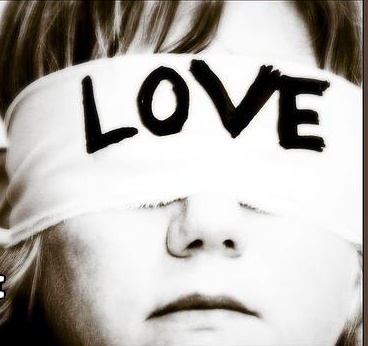 เคยถามตัวเองไหมว่า “ทำไมฉันจึงรักเธอ” เมื่อเริ่มต้นรู้สึกว่ารักใครสักคนหนึ่ง บางครั้งมันอาจเป็นรักแรกพบ บางครั้งมันอาจจะเป็นความรักที่เกิดขึ้นโดยที่เราไม่ทันตั้งตัว รู้อีกทีก็รักเขาเข้าแล้ว
เคยถามตัวเองไหมว่า “ทำไมฉันจึงรักเธอ” เมื่อเริ่มต้นรู้สึกว่ารักใครสักคนหนึ่ง บางครั้งมันอาจเป็นรักแรกพบ บางครั้งมันอาจจะเป็นความรักที่เกิดขึ้นโดยที่เราไม่ทันตั้งตัว รู้อีกทีก็รักเขาเข้าแล้ว
ในยามที่เรามีความสุขเราอาจไม่สนใจอยากหาคำตอบมากมายว่า“ทำไมฉันจึงรักเธอ”เพราะเมื่อใดที่เรามีความสุขโดยมากเรารู้สึกพอใจความรู้สึกพอทำให้ไม่ได้คิดค้นอยากหาข้อเสีย หรือคิดคำถามให้ต้องหาคำตอบ
แต่เมื่อเวลาที่เราทุกข์ ที่เราเสียใจ บางคนก็อาจมีคำถามขึ้นมาว่า ทำไมฉันจึงรักเธอหรือฉันรักเธอไปได้ยังไง(เนี่ย!) เพราะเธอนั้น หน้าตาก็ไม่หล่อเหมือนเคนธีรเดชไม่ได้รวยเหมือนบิลเกตส์ แถมยังช่างใจร้ายใจดำ ทำกันได้ลง และอื่นๆ.... (มากมายแล้วแต่ว่าอะไรจะผุดขึ้นมาในหัวเวลาโกรธ) แต่ก็ยังไม่พบคำตอบอยู่ดี ^^
ในทางพุทธศาสนา เราเชื่อว่าอะไรใดๆ ไม่ได้เกิดขึ้นมาลอยๆ การที่เราจะได้เป็นคู่รัก และครองคู่กับใครนั้นย่อมมีเหตุ
“เหตุที่ทำให้เรามีคู่ก็มาจากกรรมเก่าที่เคยร่วมทำกันมา และจะคบหายืนยาวอยู่ได้ด้วยร้ายด้วยดีต่อๆไปนั้น มาจากกรรมที่ทำเอาไว้ในปัจจุบัน กล่าวกันง่ายๆ คือ จะคบแล้วมีความสุข หรือทุกข์ เป็นผลของกรรมซึ่งสะท้อนสิ่งที่ผู้รับผลนั้นกระทำมาก่อนทั้งอดีตชาติ และชาติปัจจุบันทั้งสิ้น”
ดังนั้นหากมีความทุกข์จากรักขึ้นมา ถ้าจะถามว่าทำไมเราต้องมาทุกข์ใจกับคนๆนี้ ก็ต้องตอบว่ามันเป็นผลมาจากกรรมที่คนทั้งสองได้ทำร่วมกัน และที่เราทำมา กรรมเก่าพาเราลงมาติดกับ
“กรรมมันเริ่มส่งผลตั้งแต่วันแรกที่ใจคุณเข้าไปผูกกับเขา กรรมส่งผลที่ใจให้มารัก ให้มาหลง บังตาไว้ไม่ให้เห็นความสมเหตุสมผลทั้งหลาย หรือรู้ทั้งรู้ก็ยังรัก ถูกดูดเข้าไปใช้กรรม”
“ที่ว่าความรักทำให้คนตาบอดต้องกล่าวให้เป็นธรรมขึ้นว่า ‘กรรมบังตา’ คือกรรมบังคับใจให้ไปรู้สึกติดใจ ชอบ ใช่ รัก ผูกพันกับคนที่จะนำเราไปรับผลที่เราเคยก่อไว้ทั้งดีและร้ายนั่นเอง”
เริ่มตั้งแต่ต้นที่จะรู้สึกดีกับใคร ก็กรรมกำหนด ที่จะไปได้เจอกันในเวลาที่แสนจะพอดีอย่างไรก็กรรมกำหนด กรรมจัดฉากไว้ให้ต้องไปเจอ และรู้สึกไปอย่างนั้น จนกระทั่งจิตส่งออก ทะยานออกไปเกาะเกี่ยวยึดไว้ หลงไปยึดเอาว่าของเรา คนของเรา ไปแปะป้ายว่า นี่เป็นคนที่เราต้องการ นี่เป็นแฟนเรา ต้องดีกับเรา ห้ามไปดีกับคนอื่น พอเชื่อใจ คลายความคลางแคลง มั่นใจว่าใช่แน่ๆ มอบทุกอย่างให้หมด อาจจะแต่งหรือไม่แต่งก็สุดแท้แต่ ก็จะถึงเวลาที่ของจริงส่งผล แสดงตัวจริงของจริงให้เห็น ใจก็ “จี๊ด” ขึ้นมาจนกระทั่งต้องไปถาม อาจจะเริ่มด้วยการถามเพื่อน หรือไม่ก็ไปถามเจ้าคู่กรณี ว่าเดิมไม่ใช่อย่างนี้ ทำไมเปลี่ยนไป ที่รับปากไว้ ที่สัญญาไว้ ทำไมไม่ทำ ปรับโทษ อาละวาด ตีโพยตีพาย
กรรมทั้งนั้น……
 ซึ่งไม่ว่าจะเก่งแค่ไหน ถ้ายังมีความเห็นยึดมั่นว่า ความรู้สึกเป็นเรา ความคิดนี้เป็นของเรา ก็จะเชื่อความรู้สึกและความคิด โดยจะหลง คิดไปเองแต่แรกว่าเขาคนนั้นต้องดีอย่างนั้นอย่างนี้ คือมีใจพร้อมจะเชื่อไปก่อนอยู่แล้ว พอเขาพูดโน่นพูดนี่นิดหน่อยก็ทึกทักเอาเองว่าต้องใช่อย่างนั้น(อย่างที่ใจขอมา)แน่นอน เราจึงพร้อมทำทุกวิถีทางเพื่อให้ได้อยู่ใกล้ เป็นคู่ มีความสัมพันธ์ หลงรักคนที่ในอนาคตต่อไปจะรานน้ำใจเราซึ่งเป็นผลจากการที่เราเชื่อความรู้สึกและความคิด (ไปเอง) “ของเรา” ที่กรรมส่งมาจนในที่สุดมาพบความจริงว่า เขาไม่ได้เป็นอย่างที่เราคิด เป็นเราที่เข้าใจผิดไปเชื่อใจที่สั่งมาเอง แต่กว่าจะถึงตอนนั้น แทนที่จะรู้ตัว เห็นตามจริงว่าเป็นเราที่คิดไปเอง ก็กลายเป็นโทษกันระหว่างสองฝ่ายไปแทนว่าไม่รักษาสัจจะวาจาที่เคยมีให้กันสมัยความหลงยังครอบงำอยู่ และสร้างกรรมใหม่ต่อกันไปเสียอีกโดยไม่ได้ใช้หนี้กรรมเก่าเลย
ซึ่งไม่ว่าจะเก่งแค่ไหน ถ้ายังมีความเห็นยึดมั่นว่า ความรู้สึกเป็นเรา ความคิดนี้เป็นของเรา ก็จะเชื่อความรู้สึกและความคิด โดยจะหลง คิดไปเองแต่แรกว่าเขาคนนั้นต้องดีอย่างนั้นอย่างนี้ คือมีใจพร้อมจะเชื่อไปก่อนอยู่แล้ว พอเขาพูดโน่นพูดนี่นิดหน่อยก็ทึกทักเอาเองว่าต้องใช่อย่างนั้น(อย่างที่ใจขอมา)แน่นอน เราจึงพร้อมทำทุกวิถีทางเพื่อให้ได้อยู่ใกล้ เป็นคู่ มีความสัมพันธ์ หลงรักคนที่ในอนาคตต่อไปจะรานน้ำใจเราซึ่งเป็นผลจากการที่เราเชื่อความรู้สึกและความคิด (ไปเอง) “ของเรา” ที่กรรมส่งมาจนในที่สุดมาพบความจริงว่า เขาไม่ได้เป็นอย่างที่เราคิด เป็นเราที่เข้าใจผิดไปเชื่อใจที่สั่งมาเอง แต่กว่าจะถึงตอนนั้น แทนที่จะรู้ตัว เห็นตามจริงว่าเป็นเราที่คิดไปเอง ก็กลายเป็นโทษกันระหว่างสองฝ่ายไปแทนว่าไม่รักษาสัจจะวาจาที่เคยมีให้กันสมัยความหลงยังครอบงำอยู่ และสร้างกรรมใหม่ต่อกันไปเสียอีกโดยไม่ได้ใช้หนี้กรรมเก่าเลย
อธิบายเป็นกงกรรมกงเกวียน หรือกฎแห่งกรรมก็คือ กรรมเก่าของเรา กรรมใหม่ของเขา มันเป็นวงจร เพราะกรรม (๑) ที่เราเคยทำไว้ส่งผลให้เรามาเจอกับคนที่มีอนุสัย(นิสัย)แบบนี้เพื่อส่งผลทางใจให้เขาทำกรรม (๒) กับเรา (ตามที่เราเคยทำกับคนอื่นให้ทุกข์แบบนั้น) ซึ่งคนที่ก่อกรรม (๒) กับเราก็จะต้องไปรับผลที่ทำกรรม (๒) โดยไปเจอกับคนที่ก่อกรรม (๓) และทอดต่อๆ สืบกรรมกันไปเป็นวงจรอุบาทว์ที่ไม่มีวันจบ วนไปวนมาอย่างนี้และซับซ้อนยิ่งๆขึ้น การตัดวงจรก็ควรตัดที่ส่วนของเราให้ได้ก่อน เป็นการชิงออกจากเกมงูกินหาง โดยกรรมจะหมดช้าจะหมดเร็วนั้น ขึ้นอยู่กับที่แต่ละคนสะสมไว้
กฎแห่งกรรมนั้นไม่เคยไม่เที่ยงตรง สร้างเหตุไว้อย่างไรก็ย่อมได้รับผลเช่นนั้นแน่นอน ที่จะไม่ยอมรับเพราะบอกว่าเราดีกับเขา แต่เขาไม่ดีกับเรานั้นจึงเป็นการเข้าใจผิดของเราเองที่ว่า เราทำกรรมกับคนนี้อย่างไร คนนี้จะต้องทำกรรมแบบเดียวกันกับเราคืนมาเป๊ะๆเดี๋ยวนี้ตอนนี้(ลองคิดง่ายๆว่าเราดีกับทุกๆคนที่เข้ามาดีกับเรา ตอบแทนเขาได้เท่าที่เขาทำให้เราหรือเปล่า) เช่น เราคิดว่าเราดีกับแฟนคนนี้ แฟนคนนี้ก็ต้องดีกับเรา จึงจะเรียกได้ว่า ทำดีได้ดี ซึ่งในความเป็นจริงแล้ว “กรรมจะเลือกจัดสรรให้เราได้รับผลทั้งร้ายและดีที่เราเคยทำไว้แน่นอน แต่ไม่จำเป็นต้องได้รับตอบจากคนๆ เดิมที่เราเคยทำเสมอไป”
เช่นกรรมที่เราเคยทำไว้กับพ่อแม่ อาจจะเคยพูดไม่ดีกับท่าน ทำให้ท่านเสียใจ เราก็อาจได้รับผลนี้จากแฟน จากเพื่อนที่ทำงาน และคนอื่นๆได้ เพราะเราไม่เคยแคร์พ่อแม่ เราจึงพูดไม่ดีกับท่าน และเพราะว่าเราไม่แคร์ท่าน ดังนั้นถ้าท่านพูดไม่ดีกับเรา เราก็อาจจะไม่รู้สึกเจ็บช้ำแบบเดียวกัน กรรมจึงจะจัดสรรให้เราพบ เราเจอ เรายึด เรารักคนๆใหม่ ที่จะสามารถดึงดูดให้เราต้องทุกข์ แบบเดียวกับที่พ่อแม่ทุกข์มากเพราะรัก เพราะยึดเรามาก
ดังนั้นเวลาจะกล่าวอ้างถึงกฎแห่งกรรมนี้ ก็ต้องใช้กับทั้งสองข้าง อย่าใช้ข้างเดียว อย่างที่มักจะได้ยินใครหลายคนพูดกันเป็นประจำ เวลาเผชิญกับคนไม่ดีที่มาทำสิ่งที่เขาไม่ชอบใจว่า“เดี๋ยวมันก็เห็น ว่ากรรมมีจริง” หรือ “ทำกับเราอย่างนี้ เดี๋ยวกรรมก็สนองเข้าให้บ้าง” นี่คือการเข้าใจข้างเดียวเพราะถ้าเข้าใจอย่างถ่องแท้และมองอย่างเป็นกลางจะรู้ว่า กฎแห่งกรรมได้ให้ผลกับคนที่กล่าวเช่นนั้นไปเป็นที่เรียบร้อยแล้ว
ปลดทุกข์
 พุทธศาสนาสอนในเรื่องเหตุและผล ตามที่ได้กล่าวมาแล้วว่า การที่เราได้หรือเผชิญอะไรอยู่นั้นไม่ได้เกิดขึ้นมาลอยๆ ล้วนแล้วแต่เป็นผลจากกรรมที่เราทำมาทั้งสิ้น อธิบายให้เข้าใจเรื่องกรรม กรรมคือการกระทำโดยเจตนาที่เราทำไปแล้ว ซึ่งจะมีผลตามมาเสมอ โดยกรรมจะส่งผลตรงมาที่ความรู้สึก
พุทธศาสนาสอนในเรื่องเหตุและผล ตามที่ได้กล่าวมาแล้วว่า การที่เราได้หรือเผชิญอะไรอยู่นั้นไม่ได้เกิดขึ้นมาลอยๆ ล้วนแล้วแต่เป็นผลจากกรรมที่เราทำมาทั้งสิ้น อธิบายให้เข้าใจเรื่องกรรม กรรมคือการกระทำโดยเจตนาที่เราทำไปแล้ว ซึ่งจะมีผลตามมาเสมอ โดยกรรมจะส่งผลตรงมาที่ความรู้สึก
เมื่อกรรมส่งผล กรรมอาจจะชักจูงให้เราไปอยู่ในสถานการณ์คล้ายหรือต่างกัน แต่ความรู้สึกที่เรารู้สึกจะเหมือนกันกับที่เราเคยทำไว้กับคนอื่นไม่มีผิดเพี้ยน ดังนั้นหากอยากรู้ว่าไปทำกรรมอะไรจึงต้องมารู้สึกแบบนี้ก็ไม่ต้องไปถามใครที่ไหน ให้ดูเข้ามาข้างในใจ ที่ความรู้สึกที่ปรากฎอยู่ เพราะเหตุและผลของกรรมส่งมาที่กายและใจเราทั้งหมดแล้ว
เมื่อมีทุกข์ก็ให้ดูไปตรงๆที่ความรู้สึกที่ปรากฎทุกครั้งที่ระลึกถึงเรื่องนั้นๆ รูปแบบของกรรมที่เราทำไว้ ผู้ถูกกระทำในอดีตก็รู้สึกอย่างเดียวกับที่คุณรู้สึกอยู่นี้ ถ้าเรารู้สึกไม่เป็นกลางต่อเรื่องใดๆ หรือเรียกได้ว่ายิ่ง “จี๊ด” มากเท่าไหร่ ก็เป็นตัวสะท้อนถึงระดับความรุนแรงของเหตุที่เราเคยได้สร้างไว้นั่นเอง
ถ้าอยากเปลี่ยนแปลงชีวิตให้ดีขึ้น ก็ต้องลงมือปรับเปลี่ยนใหม่ที่ตนเอง โดยต้องเข้าใจกฎของธรรมชาติก่อนว่า เราไม่สามารถย้อนอดีตไปแก้ไขเรื่องที่ผ่าน หรือกรรมที่ทำไปแล้วได้ เราจึงหลีกเลี่ยงการที่จะได้รับผลนี้ไม่ได้ แต่ถึงแม้ว่าเราจะไม่สามารถหลีกเลี่ยงผลของกรรมได้ แต่เราสามารถเลือกกระทำกรรมที่จะส่งผลให้เรามีทุกข์ทางใจน้อยลงเมื่อวิบากส่งผล และสามารถเลือกสร้างเหตุที่จะทำให้ไม่ต้องเจอความทุกข์แบบนี้อีกตลอดไปได้ ด้วยการปรับเปลี่ยนที่วิธีคิดอันมาจากมุมมองหรือจุดยืน เพราะทุกข์เกิดขึ้นที่ใจ การจะพ้นทุกข์ได้ก็ต้องแก้ที่ใจล้วนๆ และต้องแก้ให้ถูกด้วยวิธีการดังนี้คือ
ข้อแรก แก้ให้ถูกตัว คือ แก้ที่ตัวเราใจเราแทนที่จะโทษคนอื่น หรือพยายามไปเปลี่ยนที่คนอื่น เช่น เปลี่ยนให้เขาทำตามอย่างที่เราหวังให้เป็น ให้คนอื่นทำอย่างนั้นอย่างนี้แล้วเราจะมีความสุขมากขึ้น ก็ให้กลับมาเปลี่ยนที่ตัวเราเองก่อน ด้วยเหตุว่า เราต้องการแก้ปัญหาความทุกข์ของเรา เราจะรู้สึกทุกข์ รู้สึกแย่อย่างไร ก็ด้วยกรรมที่เราเคยมีเจตนาทำให้ผู้อื่นรู้สึกอย่างนั้น กรรมของใครก็ของคนนั้น ความทุกข์ของเรามันมาจากกรรมเก่าของเรา แทนที่จะไปเปลี่ยนแปลงการกระทำคนอื่นในปัจจุบัน ซึ่งถ้าเขายอมเปลี่ยน เขาต่างหากที่จะเป็นผู้ได้รับผลในอนาคต แต่ถ้าเรายังใช้กรรมในส่วนของเราไม่หมด ก็เหมือนเรายังต้องเป็นทุกข์เพราะมีหนี้ หนี้ที่ยังไม่ใช้ ถ้าไม่สำนึกเราก็จะต้องไปรับผลของกรรมในอดีตจากคนอื่นๆในอนาคตอยู่ดี
การหลุดออกจากทุกข์ได้ จึงไม่ได้ทำได้ด้วยการต่อว่าบีบบังคับให้ใครเปลี่ยน หรือการหนี แต่หลุดได้ด้วยการยอมรับความจริงคือ ยอมรับในสิ่งที่กรรมจัดสรรมาให้ เราทำมาแค่ ๓ เราก็ต้องได้แค่ ๓ ถ้าทำมาแค่ ๓ แต่อยากได้เกินกว่านั้นเป็น ๔ เป็น ๙ ก็คงต้องทุกข์อย่างแน่นอนเพราะไม่มีทางที่จะได้เกินกว่า ๓ ตามที่สร้างเอาไว้ “ถ้าอยากได้ผลอย่างไรก็ต้องสร้างเหตุใหม่อย่างเดียวกันนั้น ด้วยการแก้ที่นิสัยของเรา”
อ่านอย่างนี้หลายคนอาจเกิดความสงสัยอย่างหนักว่าเราเป็นผู้ถูกกระทำนะ มีคนมาทำไม่ดีกับเรา แล้วเราจะแก้ตัวเองแบบไหนล่ะ?
คำตอบนี้นำไปสู่วิธีแก้ข้อ ๒ คือ แก้ให้ถูกจุด เกาให้ถูกที่ ใส่ยาให้ถูกแผล เป็นไปตามที่ได้กล่าวมาแล้วว่า เราเจออะไรซ้ำๆ เพราะเราทำ ในการกระทำกรรมแต่ละครั้ง เมื่อเราทำเราก็จะมีอนุสัย (นิสัย) หรือสันดานนั้นๆ ฝังอยู่ในใจ เช่น แรกๆเราเป็นคนใจเย็น แต่พอโตขึ้นเรามีปัญหาเข้ามาหลายอย่าง เราก็เริ่มหงุดหงิด พอเราชินที่จะขี้หงุดหงิด เราก็จะกลายเป็นคนขี้โมโห ตัวอย่างเมื่อกรรมส่งผลก็เช่น ถ้าเราขี้โมโห เราชอบพูดจาไม่ดีกับคนอื่น ใช้โทสะหรือความโกรธนั้นๆ ในการกระทำกรรม ทำให้คนอื่นรู้สึกแย่ รู้สึกไม่ดี พอกรรมมันจะสนอง มันจะส่งให้เราไปเจอ หรือไปอยู่ท่ามกลางคนที่พูดจาไม่รักษาน้ำใจ ทำให้เรารู้สึกไม่ดี รู้สึกแย่เช่นกัน (สาวๆ สวยๆ ที่เอาแต่ใจ พึงระวัง เห็นเจอแบบนี้หลายรายแล้ว ^^) ซึ่งถึงแม้ว่าเรารับผลของกรรมแล้ว แต่ถ้าจิตยังไม่เรียนรู้ ยังไม่ยอมเปลี่ยนนิสัย ยังเลือกที่จะทำแบบเดิมโดยไม่เชื่อว่ามันเป็นผลจากสิ่งที่เราทำ จิตยังไม่ได้เรียนรู้ว่ามีอะไรที่ไม่ดีที่ยังค้างอยู่ในจิตให้ต้องสืบภพ จิตก็จะมีอนุสัยสืบต่อให้ไปทำกรรมแบบนั้นแล้วได้รับผลแบบเดิมอีก และโดยมากจะยุ่งยากซับซ้อนมากขึ้นเรื่อยๆ เพราะธรรมชาติของจิตมนุษย์นั้นไหลลงต่ำ ที่อยู่ๆจะกลับนิสัยจากร้ายเป็นดีได้นั้นไม่ใช่เรื่องง่ายๆ ถ้าไม่ทุกข์หนักๆ จริงๆ ไม่ย้อนกลับมาดูที่ตนเอง ก็จะไม่มีโอกาสเข้ามาเรียนรู้ข้อบกพร่องของตัวเอง มีแต่จะเคยชินยิ่งนานยิ่งสะสมนิสัยด้านไม่ดีไว้มากขึ้น ดังนั้นหากเราจะถอดถอนวงจรการรับผลของกรรมนี้ เราก็ต้องหยุดที่ต้นเหตุ คือตัวเรา คือนิสัยที่จะสืบเนื่องให้เราได้รับผลของกรรมนั้นๆต่อไป
โดยนัยนี้คือการเลิกขุดหลุมที่กรรมขุดล่อไว้ให้ตกลงไป โดยเห็นว่าสิ่งที่เราได้รับนั้นคือ สิ่งที่ควรกัน เหมาะสมกันแล้วกับสิ่งที่เราเคยทำมาในอดีต เป็นสิ่งที่เราต้องรับ แทนที่จะตีโพยตีพาย แทนที่จะไปโวยวาย ก่อกรรมใหม่ หรือสร้างหนี้ใหม่เพิ่มโดยไม่ได้ชดใช้หนี้เก่า ก็จะเต็มใจทยอยชดใช้ไป ด้วยการสำนึกว่าเราเคยไปทำให้คนอื่นรู้สึกแบบนี้ และเข้าใจแล้วว่าก้อนทุกข์นี้มันทำร้าย สร้างความเจ็บปวดให้เขาอย่างไร (เพราะเราเจอมาแล้วกับตัวเอง)
ถ้านึกขึ้นได้ว่าเคยทำกับใครไว้ในชาตินี้ (ผู้ที่ถูกกระทำไม่จำเป็นว่าต้องเป็นแฟนเก่า กิ๊กเก่าเท่านั้น แต่โดยมาก มากกว่าร้อยละ ๕๐ เป็นกรรมที่เราทำไว้กับพ่อแม่ รองลงมาจึงเป็นแฟนเก่า คู่รักเก่า คนที่มาชอบเรา และอื่นๆ) ให้รีบไปขออโหสิกรรมจากคนเหล่านั้นโดยเร็วที่สุด ตั้งสัจจะกับตนเอง อาจจะต่อหน้าคนที่เราเคยไปกระทำเขาไว้ หรือต่อหน้าพระพุทธรูปว่า เราจะไม่ทำกรรมอย่างนี้กับใครอีกไม่ว่าจะมีเหตุการณ์มาบีบบังคับ ลำบากเพียงใด แต่ถ้านึกเท่าไหร่ก็นึกไม่ออกจริงๆ ว่าเคยไปทำอะไรแบบนี้ไว้กับใครตอนไหนในชาติปัจจุบันก็เป็นไปได้ว่าเป็นผลของกรรมที่เราทำมาในอดีตชาติ ก็ขอให้ระลึกขออโหสิกรรม และตั้งใจอย่างเดียวกันว่าจะไม่ทำแบบนี้อีก
การตั้งใจ อันมีเจตนา และสัจจะอธิษฐานที่จะละเว้นการกระทำนี้เอง คือศีล ซึ่งเป็นมโนกรรมที่ส่งผลในการปกป้องทุกข์ทางใจเป็นอันดับแรก เพราะว่าความตั้งใจทางมโนกรรมนั้นเป็นการกระทำด้วยเจตนาอย่างหนึ่งซึ่งจะต้องมีผลตามมาซึ่งผลของกรรมนี้ก็คือ ปราการป้องกันใจเราจากทุกข์ (เพราะเราตั้งใจไม่ให้ผู้อื่นเป็นทุกข์) ยิ่งตั้งใจหนักแน่นมากขึ้นเท่าไหร่ ความหนักแน่นในการปกป้องทุกข์ก็จะยิ่งมั่นคงขึ้นตาม
เมื่อเรามีศีลจิตใจก็จะเริ่มสงบจากการแส่ส่ายร้อนรนเพราะความทุกข์ ความตั้งใจที่จะละเว้นนี้ จะส่งผลให้จิตเกิดความปกติ เกิดนิสัยที่จะสำรวมการกระทำทางกายและค่อยๆเคลื่อนมาที่ การสำรวจวาจา คำพูดและในที่สุดก็คือ ความคิด อันเป็นต้นเหตุว่าสิ่งใดนำไปสู่การละเมิดใจผู้อื่น เมื่อเราสำรวจเข้ามาบ่อยเข้า และตัดไปเป็นครั้งๆ มากเข้าก็จะกลายเป็นเปลี่ยนนิสัย หรือตัดกรรมส่วนนี้ได้อย่างเด็ดขาด นั่นจึงจะเป็นทางออกจริงๆ ที่จะทำให้ทุกอย่างจบลงอย่าง Happy Ending
การทดลองวิธีแก้กรรมโดยแก้ที่ต้นเหตุตามกระบวนการนี้ ย้ำอีกครั้งว่า สาระสำคัญของการแก้วิบากกรรมคือ
๑. เข้าใจกฏแห่งกรรม
๒. ชำระหนี้เก่า (ยอมรับสิ่งที่ได้เจอ สำนึกผิดให้ได้ก่อนในระดับ ที่จะไม่ทำอีกเลยและไปขออโหสิกรรมจากคนที่เราไปทำเขาไว้ รวมทั้งอโหสิให้กับคนที่ทำกับเรา)
๓. สร้างเหตุใหม่ที่ดี (ตั้งใจว่าจะไม่ทำให้ใครทุกข์แบบเดียวกับที่เราทุกข์อีกแล้ว หรือไปแนะนำช่วยคนอื่นไม่ให้ทำผิดตามเรา)
การทดลองนี้พี่ชายได้เคยทดลองทำมาแล้วด้วยตัวเอง และได้แนะนำให้คนอื่นๆได้ทดลองมาแล้วเป็นหลายร้อยครั้ง รวมทั้งตัวดิฉันเอง ถ้าสำนึกผิดอย่างแท้จริงถึงระดับที่ไม่พยายามรักษามันไว้อีกต่อไป เช่น เมื่อมีผู้กล่าวถึงความผิดนั้นๆก็ไม่โกรธเคือง และไม่ระคายใจเพราะเห็นแล้วว่าสิ่งนั้นนิสัยนั้นไม่ใช่เรื่องดี ไม่ใช่เรื่องเสียหน้า ตรงกันข้ามคือเห็นว่านิสัยแบบนั้นไม่ดีและเป็นสิ่งที่ต้องพากเพียรขัดเกลามันออกเพื่อทิ้งนิสัยนี้ไปให้หมด จนกระทั่งสามารถพูดอย่างเปิดเผยถึงความผิดนั้นๆ ทุกขั้นทุกตอนโดยละเอียดเสมือนว่าไม่ใช่เรื่องของเรา โดยสามารถพูดกับใครก็ได้ที่สนใจเพื่อเขาจะได้ไม่ทำผิดพลาดแบบเดียวกับที่เราเคยทำไปในอดีต รวมทั้งจะไม่กลับไปกระทำอย่างนั้นอีกแม้จะมีสิ่งดึงดูดใจให้กระทำ ก็จะพบว่าทุกข์ทางใจจะลดลงในชั่วข้ามคืน และคนรอบตัวที่ก่อเหตุแห่งทุกข์ก็จะเปลี่ยนแปลงพฤติกรรมให้เห็นในหลักไม่กี่วัน และเรื่องราวจะ
จบลงสิ้นเชิงในหลักไม่กี่เดือน
จบลงสิ้นเชิงในหลักไม่กี่เดือน
ในอีกด้านหนึ่ง ถ้ายังโกรธเมื่อมีใครพูดถึงพฤติกรรมที่ไม่ดีของตน หรือยังพยายามปิดบัง กลบเกลื่อน อ้างเหตุผลต่างๆ นานาเพื่อปกป้องว่าสิ่งที่เคยกระทำนั้นดีแล้ว ถูกแล้ว มีเหตุผลอย่างนั้นอย่างนี้เพื่อจะได้ไม่เป็นผู้ผิด(หรือผิดน้อยลงหน่อย) หรือยังกล่าวโทษผู้อื่นว่าเป็นผู้ผิดหรือมีส่วนผิดที่มากระทำเอากับเรา นี่แสดงว่ายังไม่ทิ้ง นิสัยนั้น ยังพยายามปกป้องหรือเก็บรักษานิสัยนั้นๆไว้ในตนเอง นี่ยังไม่ใช่การสำนึกผิด ยังมีโอกาสกลับไปทำอีก และจะต้องไปรับผลนั้นซ้ำอีก จนกว่าจะยอมทิ้งมันไปโดยถาวร
อธิบายให้เห็นภาพในการหยุดวงจรส่วนของเราว่า การสร้างเหตุและผลนั้นเหมือนเราเป็นคนปลูกต้นไม้ ต้นไม้จะหยุดเติบโต เมื่อเราหยุดให้น้ำ เช่นกัน การรดน้ำต้นไม้แห่งกรรมจะสิ้นสุดลง เมื่อจิตเราหมดเหตุที่จะสร้างกรรมชนิดนั้นต่อไป ซึ่งหมายถึงการที่เราสำนึกได้แล้วอย่างเด็ดขาดว่า ถ้าเราทำกรรมอย่างนี้ๆแล้ว เราจะ ได้รับกรรมอย่างนั้นๆ ซึ่งมันเชื่อมโยงกันได้ แต่การหยุดให้น้ำไม่ได้ หมายความว่าต้นไม้จะตายในทันที เช่นกัน การหยุดรดน้ำต้นกรรม ผลของกรรมก็จะไม่ได้หยุดลงในทันที แต่จะส่งผลไปอีกระยะหนึ่งให้เราได้ใช้กรรมจนกว่าเชื้อกรรมที่เราเคยทำไว้หมดลง ต้นกรรม ก็จะแห้งและตายไปในที่สุด ทำนองเดียวกับต้นไม้เล็กๆ หยุดรดน้ำ ไม่กี่วันก็ตาย แต่ถ้าเป็นต้นไม้ยืนต้น ขนาดใหญ่สัก ๖ คนโอบ หยุดรดน้ำแล้ว คงต้องใช้เวลาอีกนานกว่าจะตายและหยุดให้ผล แต่ก็ยังดีกว่าเราไม่รู้ตัวและให้ปุ๋ยให้น้ำมันไปเรื่อยๆ และจะต้องรับผลของต้นกรรมนั้นไปอย่างไม่มีที่สิ้นสุด
ถ้าคุณตั้งใจดีแล้ว และได้ลองปฏิบัติตามนี้ก็หวังใจไว้ได้เลยว่าไม่นานจะออกจากวงจรกรรมนี้ได้ แต่คนส่วนมากอาจพลาด เพราะส่วนใหญ่ติดในทุกข์ หวงทุกข์เอาไว้ เพราะมีความไม่รู้เป็นเครื่องผูก ไม่รู้ว่าที่เราได้ เรามี เราเจออะไรเพราะผลของกรรม กรรมมันหลอกให้เรามาหลง มายึด มารักคนๆนี้เพื่อส่งผลให้เราได้รับผลจากกรรมที่เราทำมา ถ้าเราไม่มีสติ ไม่รู้ตัว กอดความทุกข์นี้ไว้ เราก็จะไม่ก้าวหน้าไปไหน และต้องเจอกับความทุกข์ซ้ำ แต่ถ้าเรา เลือกเปลี่ยนตัวเอง เปลี่ยนการกระทำ เปลี่ยนนิสัยไปในทางที่ดี แฟนหรือคู่รักจะเป็นคนเดิมหรือไม่ ไม่สำคัญ เพราะถึงตอนนั้นใจจะคลายความยึดจากเหยื่อคือเขา/เธอตามกรรมที่ส่งมาหลอก และเราจะได้รับผลจากการกระทำดี ด้วยการมีความสุขนั่นเอง
แนะนำเพิ่มเติมอีกหน่อยนึงว่า ถ้าเกิดว่าเราระลึกไม่ออกว่าได้เคยไปทำผิดกับใครไว้ และอาจทำให้ไม่สามารถรู้สึกระลึกถึงความผิดนั้นๆเพื่อจะได้รู้สึกสำนึกออกมาจากใจ เป็นไปได้ว่าเราอาจยังไม่ได้สร้างเหตุให้เข้าใจกรรมของตัวเองได้เพียงพอ แนะนำให้ลองไปทำทานประเภทสละของใช้ที่เป็นของตัวเองแต่ไม่ใช้แล้วให้กับคนที่ยากไร้หรือขาดแคลนจริงๆ เพื่อเป็นการสอนใจให้ใจเลิกยึด รู้จักสละของที่รู้สึกว่าเป็นของตนออก จะทำให้ใจสามารถเปิดรับสิ่งดีๆได้ง่ายขึ้น หรือถ้ามีความทุกข์แต่อ่านหนังสือเล่มนี้แล้ว ยังไม่สามารถเข้าใจได้แนะนำให้ลองทำบุญด้วยการให้ธรรมะ แต่เน้นว่าต้องเป็นธรรมะที่เป็นไปเพื่อความเห็นไตรลักษณ์(อนิจจังทุกขังอนัตตาคือความเปลี่ยนแปลงความไม่สามารถทนอยู่และความไม่ใช่ตัวตน) ในกายและใจ จนเกิดความปล่อยวางเป็นสำคัญ เพื่อช่วยเหลือคนอื่นๆ โดยมีเจตนาจะให้เขาพ้นทุกข์ (ถ้าให้เพื่อช่วยเหลือเรื่องความรักก็จะตรงจุดมากยิ่งขึ้น) จะทำให้ใจสามารถรับและเข้าใจธรรมะได้มากขึ้น
ใช้ใจทำทาน ใช้ใจรักษาศีล เพื่อให้ใจออกจากกรรม
 คุณทราบหรือไม่ว่าพระพุทธศาสนาสอนอะไรหลายคนถูกประกาศตัวว่าเป็นชาวพุทธมาแต่กำเนิด (โดยพ่อแม่ หรือใครก็ตาม) และบอกใครๆเสมอมาว่าเรานับถือศาสนาพุทธ แต่ความเป็นจริงแล้วไม่เคยรู้เลยว่าที่แท้พุทธศาสนาสอนอะไร และมีประโยชน์ต่อการมีชีวิตอยู่ขนาดไหน พระพุทธองค์ทรงตรัสสอนเกี่ยวกับการดำเนินชีวิตตั้งแต่เกิดจนตาย ทั้งในระดับการดำเนินชีวิตอย่างสงบสุขในสังคม ไปจนถึงการออกจากทุกข์ถาวร
คุณทราบหรือไม่ว่าพระพุทธศาสนาสอนอะไรหลายคนถูกประกาศตัวว่าเป็นชาวพุทธมาแต่กำเนิด (โดยพ่อแม่ หรือใครก็ตาม) และบอกใครๆเสมอมาว่าเรานับถือศาสนาพุทธ แต่ความเป็นจริงแล้วไม่เคยรู้เลยว่าที่แท้พุทธศาสนาสอนอะไร และมีประโยชน์ต่อการมีชีวิตอยู่ขนาดไหน พระพุทธองค์ทรงตรัสสอนเกี่ยวกับการดำเนินชีวิตตั้งแต่เกิดจนตาย ทั้งในระดับการดำเนินชีวิตอย่างสงบสุขในสังคม ไปจนถึงการออกจากทุกข์ถาวร
หลายคนอาจจะเคยได้ยินเกี่ยวกับเรื่องไตรสิกขา อันได้แก่ อธิศีลสิกขา อธิจิตตสิกขา และอธิปัญญาสิกขา (หรือเรียกโดยย่อว่า ศีล สมาธิ ปัญญา)
ไตรสิกขานี้เกี่ยวข้องเป็นประโยชน์ทั้งในระดับการดำเนินชีวิต และการออกจากบ่วง ออกจากวงจรความทุกข์ โดยเราสามารถได้ประโยชน์ทั้งสองอย่างสูงสุดด้วยการมีเป้าหมายของใจที่จะศึกษาการเกิดขึ้น ตั้งอยู่ และดับไปของความทุกข์ทางใจทุกชนิดจากเหตุการณ์ที่เกิดขึ้นจริง โดยในจุดนี้ขอเพิ่มเรื่องทานเข้าไปเพื่อเป็นฐานแรกในการพาใจออกจากทุกข์
ในส่วนของทานหลายคนคงได้ยินมาบ้างว่าการให้ทาน เป็นเหตุหรือเป็นบุญที่ส่งผลให้เราร่ำรวย ไม่ลำบากในชาติต่อไป นี้เป็นส่วนของประโยชน์ในการดำเนินชีวิต ในการอยู่กับโลก แต่ในแง่การทำให้ออกจากทุกข์ถาวรนั้น การได้ทำทานที่เป็นทานจริงๆ เป็นประจำ คือมีกิริยาทางกายที่เป็นการให้ และประกอบด้วยกิริยาทางใจที่เป็นการสละสิ่งของที่เป็นของเรา เมื่อทำบ่อยๆจนคล่องแคล่วชำนาญจะเป็นการฝึกใจให้รู้จักปล่อยวางสิ่งที่ยึดถือว่าเป็นของเรา ซึ่งจะมีประโยชน์มากในการฝึกใจให้รู้จักการปล่อยวางความทุกข์ด้วย ทำให้ไม่ทุกข์นาน ลองสังเกตจิตใจเปรียบเทียบกัน ระหว่างที่ได้ทำทานด้วยการสละการไม่ถือไม่ยึดจะให้ความรู้สึกโปร่งโล่ง แต่เวลาที่มีความทุกข์ มันจะรู้สึกหนักและแน่น ที่มันหนักมันแน่นก็เพราะใจเรายึด เราถือมันไว้ ดังนั้นที่เรามีทุกข์ก็เพราะเราไม่เคยรู้ตรงนี้ และเพราะใจเราเคยชินที่จะถือมากกว่าปล่อย
ส่วนเรื่องการรักษาศีล หลายคนที่ได้ศึกษาพุทธศาสนามาบ้าง คงเคยได้ยินว่าการรักษาศีลเป็นการปกป้องเราจากภยันตราย อันเนื่อง มาจากการที่เราไม่เบียดเบียนผู้อื่น ก็จะไม่มีใครมาเบียดเบียนเรา และการรักษาศีลอย่างหมดจดคือการไม่กระทำกรรมใดๆ ตามอำนาจกิเลสอันเป็นเหตุให้เกิดความเศร้าหมอง ผลที่ได้จึงเป็นไปในทางตรงกันข้ามคือจะส่งผลตกแต่งให้กาย/หน้าตาผิวพรรณดูผุดผ่อง สดใส สะสมไปมากๆก็จะเป็นฐานบุญให้ชาติใหม่มีรูปร่างหน้าตาที่สมส่วนดูดี ส่วนในแง่การรักษาศีลที่มีประโยชน์ต่อการฝึกตนฝึกใจนั้น หลวงปู่เหรียญ วรลาโภเคยกล่าวไว้ว่า“คนเราละเมิดศีลกันก็เพราะกรรมที่เคยกระทำมาส่งผลให้เท่านี้ๆ แล้วยังไม่จุใจ ทางเดียวที่จะได้มาก็คือต้องไปเอาส่วนที่เป็นของคนอื่นมาเป็นของเรา จึงมีการละเมิดศีล คือไปละเมิดของที่ไม่ใช่ของเรา” การรักษาศีลจึงเป็นการฝึกความตั้งใจที่จะไม่ละเมิดผู้อื่น “ด้วยความอยาก” อันเป็นก้าวแรกที่นำชีวิตของคนเราไปสู่ความทุกข์
หากเราได้มีการรักษาศีลไว้ดี ใจจะรู้จักสละความอยากครอบครองที่เป็นการละเมิดสิทธิของผู้อื่น เมื่อฝึกจนจิตเกิดความชำนาญก็จะมีผลช่วยลดระงับความเร่าร้อนในความอยากนั้นๆ เนื่องจาก มีความเข้าใจ เห็นโทษ เพราะสามารถเชื่อมโยงได้ว่า การละเมิดใจผู้อื่น ในวันนี้ จะนำไปสู่การถูกละเมิดใจในวันหน้าอย่างแน่นอน คือสุขที่ได้ในตอนนี้จะพลิกเป็นทุกข์มหันต์ในวันหน้าได้ จึงมีผลทำให้ใจรู้จักระงับยับยั้งไม่หลงไปกระทำตามความอยากจนไปก่อกรรมที่จะทำลายความสุขทั้งของเราเองในอนาคตและความสุขของคนรอบข้างในปัจจุบัน
กล่าวโดยรวบยอด การทำทานและรักษาศีลนั้น ตอบโจทย์ของการอบรมจิตเพื่อป้องกันทุกข์จากทั้งสองปัญหาใหญ่ คือ ทานนั้นแก้ปัญหาทุกข์จากการกลัวจะเสียไป ส่วนศีลนั้นเป็นการแก้ปัญหาทุกข์เพราะกลัวไม่ได้มา ด้วยการสละออกที่เริ่มตั้งแต่ที่ใจ คือพร้อมจะสละในสิ่งที่ไม่ใช่ส่วนของตน แทนที่จะดับความอยากนั้น ด้วยการพยายามไปครอบครองของที่ไม่ใช่ของๆตน ซึ่งจะไม่ได้เป็นการแก้ปัญหาที่ต้นเหตุ ที่ความอยากของเรา แต่เป็นการก่อกรรมใหม่อันจะเป็นผลให้เราต้องชดใช้และมีความทุกข์ไปเรื่อยๆตามเหตุที่เราได้เคยทำให้ผู้อื่นทุกข์ใจไว้
เมื่อจิตรู้จักสละละวางความยึดด้วยการหมั่นทำทานและรักษาศีลบ่อยเข้า เกิดความสนใจ ใส่ใจดูการกระทำของจิตบ่อยๆ จนเกิดความเคยชิน จิตก็จะเกิดความฉลาดหรือปัญญาในการดูจิตมากขึ้นๆ เป็นลำดับต่อมา คือเห็นกระบวนการทำงานของจิต รู้ตั้งแต่จิตกำลังทะยาน(ตัณหา)ไปอยากได้ของที่ไม่ใช่ของเรา ทะยานไปยึดของที่เป็นของเราแล้วแต่อาจจะเสียไปหรือกำลังจะเสียไปว่า ตัณหา(ความอยาก)นี้แหละคือสมุทัย(เหตุแห่งทุกข์) หรือทุกข์ทั้งก้อน ถัดจากนั้นเมื่อรู้ใจตนเองมากเข้าก็จะเห็นได้ว่า ที่มันทะยานเรื่อยๆนี่เพราะมันมีความเห็นผิดว่าเป็นเราเป็นตัวเราคืออัตตา ก็ดูอยู่ที่จิตนี่แหละจนกว่าจะเห็นอนัตตา(ความไม่ใช่ของฉัน ความสั่งไม่ได้) คือเห็นว่าทุกๆอย่างที่ประกอบกันขึ้นมาเป็นตัวเราทั้งร่างกายและจิตใจนี้มันไม่ใช่ของเรา ร่างกายนี้ทั้งหมดทุกโมเลกุลคืออาหารที่ยืมมาจากโลก เวลาทุกข์สั่งให้สุขไม่ได้ เวลากำลังสุขจะไปสั่งให้มันทุกข์ก็ไม่ได้คือเข้าถึงธรรมด้วยการปล่อยวางความเป็นตัวเรา ทิ้งความเป็นเรา เมื่อหมดความเห็นผิดว่าเป็นตัวเรา หมดความยึดจากการเฝ้าสังเกตใจ ก็จะหมดการกระทำอันจะนำหรือก่อให้เกิดภพ เกิดชาติ และเกิดทุกข์ทางใจได้ถาวร
รู้ได้อย่างไรว่าหมดกรรมแล้ว
 ที่เราจะหมดกรรมได้ ก็เพราะใช้กรรมนั้นๆจนหมด และไม่มีจิตคิดสร้างกรรมใหม่ที่จะส่งให้ได้รับผลอย่างนี้อีก ถ้าเราหมดกรรมหรือได้ใช้กรรมชนิดนี้ไปบางส่วนแล้ว ใจจะไม่รู้สึกเจ็บแค้น หรือผูกพยาบาท หรือถ้ารู้สึกก็จะเบาบาง เมื่อเผชิญกับเหตุการณ์ลักษณะนี้ แต่ถ้ายิ่งผูกพยาบาทอาฆาตร้ายแรงเท่าไหร่ก็สะท้อนว่าเรายังมีหนี้ใจที่ยังติดค้างไม่ได้ชำระ มากเท่าๆกับความเจ็บแค้นพยาบาทที่เรากำลังรู้สึกอยู่นั่นเอง
ที่เราจะหมดกรรมได้ ก็เพราะใช้กรรมนั้นๆจนหมด และไม่มีจิตคิดสร้างกรรมใหม่ที่จะส่งให้ได้รับผลอย่างนี้อีก ถ้าเราหมดกรรมหรือได้ใช้กรรมชนิดนี้ไปบางส่วนแล้ว ใจจะไม่รู้สึกเจ็บแค้น หรือผูกพยาบาท หรือถ้ารู้สึกก็จะเบาบาง เมื่อเผชิญกับเหตุการณ์ลักษณะนี้ แต่ถ้ายิ่งผูกพยาบาทอาฆาตร้ายแรงเท่าไหร่ก็สะท้อนว่าเรายังมีหนี้ใจที่ยังติดค้างไม่ได้ชำระ มากเท่าๆกับความเจ็บแค้นพยาบาทที่เรากำลังรู้สึกอยู่นั่นเอง
เมื่อเราได้ใช้กรรมเรื่องใดๆหมด ถ้าเรายังมีกรรมด้านอื่นๆร่วมกับเขาอยู่ (ทั้งในด้านบุญและบาป) เราทั้งคู่ก็ยังมีชีวิตอยู่ร่วมกันต่อไปตามเหตุปัจจัยที่เราสร้างและได้ร่วมสร้างกันมา แต่ถ้าหมดกรรมกันแล้วทั้งหมด ใจเราที่รู้สึก ที่มีต่อเขาก็จะหมดตาม เราอาจจำเรื่องราวทุกอย่างที่เขาทำกับเราได้ทุกเรื่อง แต่รู้สึกเหมือนเป็นเรื่องของคนอื่น เมื่อเจอหน้ากัน เราก็จะไม่รู้สึกเจ็บ หรือจี๊ดขึ้นมาอีก เหมือนตอนเลิกกับแฟนคนแรกแล้วรู้สึกทุกข์เจียนตาย แต่พอมีแฟนใหม่ก็ทุกข์เพราะแฟนใหม่ ลืมความทุกข์ที่เคยเกิดขึ้นกับแฟนคนเก่าไปแล้วแม้ว่าอาจจะยังจำเรื่องราวได้อยู่ก็ตาม คำว่า ไม่รู้สึกอะไร ก็หมายถึงไม่ได้มีความรู้สึกไม่อยากเจอด้วย จะเป็นความรู้สึกเห็นหน้าเขาแล้วเหมือนเห็นหน้าเพื่อน หรือคนที่รู้จักคนหนึ่งซึ่งสามารถยิ้มทักทายได้เพราะไม่ได้รู้สึกผูกกับทุกข์ทางใจนั้นๆแล้ว และถ้าหมดกรรมและเกิดปัญญาเข้าใจเรื่องกรรมแล้ว เรามักจะเกิดความกรุณา คือ หวังให้เขาพ้นจากทุกข์ที่เขาจะต้องไปรับ (เพราะกรรมที่มาก่อกับเราไว้) ต่อไปในอนาคต จนสามารถอโหสิกรรมให้เขาได้จากใจ ไม่ว่าจะได้เอ่ยปากหรือไม่ก็ตามทีี
แฟนแอบมีกิ๊ก ทำอย่างไรดี?
 จากช่วงถามตอบ หนังสือ คู่มือความรักค่ะBy P'Jo
จากช่วงถามตอบ หนังสือ คู่มือความรักค่ะBy P'Jo
แฟนแอบมีกิ๊ก ทำอย่างไรดี?
การที่เขาไปมีกิ๊ก มันเป็นคำตอบอยู่ในตัวแล้วว่า เขาไม่พอ แปลว่าเขาเป็นคนที่อยากได้ แล้วเขาได้จากเราไม่พอ หรือไม่ได้อะไรจากเรา ดังนั้นเขาจึงต้องไปหาจากคนอื่น มันตอบได้ทั้งสองแนวเลย
คำถามคือต้องทำอะไร คือกับใคร คือ ทำอะไรกับแฟนล่ะ หรือทำอะไรกับตัวเอง
ถ้าเป็นพี่ พี่จะเลือกเปลี่ยนที่ตัวเอง คือถ้าแฟนมีกิ๊กเนี่ย เราต้องทำตัวเราให้ดียิ่งขึ้น คือไม่ได้บอกว่าจะไปทำทุกอย่างให้เขา มอบกายถวายชีวิตให้เขา ไม่ใช่อย่างนั้น แต่ว่าคือการไปทำตนเองให้ดีขึ้น ก็จะกลับมาที่เรื่องการขัดเกลาตัวเอง ยิ่งเราเปลี่ยนแปลงตัวเองไปได้มากขึ้นเท่าไหร่ ใจเราจะพ้น ถ้าเราหลงรักแฟนเราอยู่แล้วแฟนเราไปมีกิ๊กนี่ มันสะท้อนแล้วว่าเราอาจจะเคยทำกรรมไว้ลักษณะเดียวกันนี้มา วิธีสังเกตคือยิ่งใจเราจี๊ดกับการที่รู้ว่าแฟนเราไปกิ๊กมากขึ้นเท่าไหร่ มันสะท้อนเลยว่าเรามีกรรมนี้มาแน่ๆ แต่ถ้าเราไม่จี๊ด เรารู้สึกเฉยๆ เราไม่ค่อยพอใจ อันนี้มันอาจจะไม่ใช่กรรมเก่า แต่ถ้ายิ่งใจเราจี๊ดมากกับการที่แฟนไปมีกิ๊กเนี่ย อันนี้เนี่ยสะท้อนแล้วว่าเราต้องมีกรรมเรื่องนี้
ดังนั้นวิธีแก้ก็คือ น้อมรับเลยว่า การที่แฟนนอกใจนี่ รู้สึกอย่างนี้นี่เอง ดังนั้นต่อไปเราจะไม่นอกใจใครอีกแล้ว ไม่ว่าจะเหงาขนาดไหนก็ตาม เราจะไม่นอกใจแฟน การวางใจไว้แบบนี้ การตั้งใจไว้แบบนี้เนี่ย ความทุกข์จะหายไปมากกว่าครึ่งเลย หายไปแบบโล่งเลย อันนี้มาจากการที่ได้เคยแนะนำคนไป300กว่าคนแล้วเขาดีขึ้น
วิธีที่จะหลุดจากผู้ชายแบบนี้หรือผู้หญิงแบบนี้ ทุกคนที่มีกิ๊กแฟนที่มีกิ๊กโดยเร็ว คือเปลี่ยนตัวเองแล้วใจเราจะเริ่มหลุดจากเขาไปอย่างน่าประหลาดใจ เราจะเริ่มไม่แยแสเขา ไม่ใช่การไปกล่าวโทษหรือไล่จับผิดเขา เพราะ เราไม่มีทางแก้ปัญหาได้ด้วยวิธีนี้ พี่ได้พิสูจน์มาเป็นร้อยๆครั้งแล้ว ต่อให้เราจับได้ เขาก็ไปอยู่ดี ดังนั้นคือ เรารีบเปลี่ยนตัวเองและให้ใจเราถอน ถอนจากคนที่ยังมีความสุขแบบหยาบๆด้วยการละเมิดใจคู่ของตัวเองอยู่ดีกว่า
ทำบุญอย่างไรให้สมหวังในรัก
 มีความเชื่อที่เข้าใจกันผิดๆที่เห็นกันบ่อยๆคือ การทำบุญซื้อความรัก
มีความเชื่อที่เข้าใจกันผิดๆที่เห็นกันบ่อยๆคือ การทำบุญซื้อความรัก
ประโยคนี้อาจไม่ค่อยมีใครเคยได้ยิน แต่ถ้าถามว่าใครเคยเอาเงินไปซื้อพวงมาลัย ซื้อของทำบุญ หยอดเงิน ถวายของพระเสร็จแล้ว เอามิือประนมนิ้วโป้งจรดหน้าผาก "สา.....ธุ ขอให้เจอเนื้อคู่ซะทีเถ๊อะ.... ขอให้เราสองครองคู่อยู่ด้วยกันชั่วฟ้าดินสลายที่เถ๊อะ....." อันนี้อาจฟังดูคุ้นๆขึ้นมาบ้าง :)
ถ้าคนเราขอคนรัก ความรักดีๆกันได้ง่ายๆยิ่งกว่าใช้บัตร easy pass ผ่านด่านทางด่วนล่ะก็คงจะดี แต่เพราะขอไปเท่าไหร่ก็ไม่ได้นี่สิ เลยน่าจะมาเอะใจว่าทำพิธีกรรมผิดวิธีไปหรือเปล่่า?
ที่ว่าการยกมือปรกๆขอนั้น แท้ที่จริงเค้าเรียกว่า "การอธิษฐาน" การอธิษฐานมันไม้ใช่อย่างการยกมือแบมือขอหรอกนะ แท้ที่จริงการอธิษฐานเค้าหมายถึงการกำหนดจิต ตั้งใจ ตั้งเป้าหมายให้ใจได้ตามนั้น
แต่จะได้ไม่ได้นี่ขึ้นอยู่กับว่าเราเดินทางถูกไหม อดทนเดินทางไปจนถึงเป้าหมายไหม
การทำบุญนั้นช่วยนำอะไรดีๆเข้ามาในชีวิตจริง ช่วยเพิ่มโอกาสให้เรามีคนรักที่ดีได้จริง และทำให้เราสามารถอยู่ร่วมกับคนที่เรารักได้จริง ช่วยดึงดูดใจสองดวงได้จริง แต่ต้องทำให้ถูก
การทำทานช่วยเรื่องความรักได้อย่างไร?
คนที่ทำทานเป็น หรือคนที่รู้จักให้ จะเข้าใจว่าขณะทำทาน ขณะให้นั้นใจเป็นอย่างไร การทำทานที่ถูกหมายถึงการสละสิ่งที่เป็นของตน (เงิน ข้าวของ เวลา ปัญญา) เพื่อความสุขของผู้อื่น ใจที่เสียสละนั้นเปิดกว้าง ปราศจากความเห็นแก่ตัว ใครอยู่ใกล้ก็รู้สึกร่มเย็น มีความสุข คนแบบนี้มีเสน่ห์น่ารักไหมล่ะ?
"ใจของคนที่รู้จักให้คือใจของคนที่รู้จักรัก"
การรักษาศีลช่วยเรื่องความรักได้อย่างไร?
บางคนเข้าใจว่าถือศีล 5 ศีล 8 แล้วได้บุญใหญ่ เอาไปแลกเป็นความรักแบบบิ๊คโบนัสได้ แท้จริงแล้วศีลหมายถึงการมีเจตนางดเว้นไม่ละเมิดผู้อื่นให้ทุกข์หรือเดือดร้อน อยู่ใกล้ๆคนละโมบ คนชอบเบียดเบียนแล้วเป็นทุกข์เป็นร้อนไหม? เราอยากอยู่ใกล้คนชอบหาเรื่องเดือดร้อนมาให้ไหม? แล้วคิดว่าจะมีคนดีๆที่ไหนอยากอยู่ใกล้คนแบบนี้ไหม?
การรักษาศีล หรือการรักษากายวาจานั้น มีความรวมคือการสำรวจการกระทำซึ่งการทำอะไรบ่อยๆก็จะทำให้มีนิสัยเช่นนั้น
"นิสัยก็คืออาจิณกรรมที่จะดึงดูดให้เจอคนแบบไหนตามกรรมที่เราทำมา ดังนั้นอยากมีคนรักเช่นไรก็ทำตนให้เป็นคนเช่นนั้น"
การภาวนาช่วยเรื่องความรักอย่างไร?
ที่เขาว่ากันว่าภาวนานั้นเป็นบุญใหญ่เพราะการภาวนาเป็นการสอนให้ใจเห็นความจริง เข้าใจความจริง คือมุ่งเน้นที่ใจอันเป็นต้นตอของสิ่งทั้งปวง จะสุขจะทุกข์ก็เกิดจากใจ ทำกรรมอะไรจะชี้ขาดว่าดีไม่ดีก็ดูจากใจดวงนี้ การทำสมถะ การฝึกสมาธิ ช่วยให้ใจมีความหนักแน่นมั่นคง ไม่ฟุ้งซ่าน แส่ส่ายตามอารมณ์ทำให้ไม่ต้องพาลทุกข์เพราะอารมณ์โกรธ หึงหวง คิดมากและอื่นๆไปเอง นิสัยที่ไม่บุ่มบ่ามคือมีความอดทนนั้นย่อมช่วยให้สามารถรักษาความรักได้ดี
ลำดับต่อมาคือการทำวิปัสสนาคือการสอนใจ ให้เข้าใจ เห็นกายใจตนเองว่ามีความแปรปรวน เปลี่ยนแปลง ไม่สามารถสั่งให้เป็นอย่างใจ(อนิจจัง ทุกขัง อนัตตา)ยึดสิ่งใดก็ทุกข์เพราะสิ่งนั้น(เมื่อยึดก็ต้องหวง เมื่อหวงก็เกิดอาการหน่วงเหนี่ยว) เมื่อเข้าใจตามจริงได้แล้ว ก็ไม่เกิดการบังคับฝืนความจริง ฝืนใจใคร ใจเป็นอิสระจากความทุกข์ ก็รู้จักให้อิสระอันเป็นสุขแก่ผู้อื่น "ใจที่เป็นสุขนั้นแหละที่เป็นแรงดึงดูดให้น่าอยู่ใกล้ ไม่ใช่ความต้องการยึดถือหรือฉุดดึงเข้าหาตัวเลย"
เมื่อใจรู้จักให้รู้จักรัก ก็มีเสน่ห์ เมื่อใจดีแล้วก็ดึงดูดสิ่งดีๆ คนดีๆเข้ามา เมื่อใจมีปัญญา มีความสามารถในการเห็นสิ่งต่างๆชัด เมื่อดีแล้วก็รู้ว่าคนดีเป็นเข่นไร ก็จะทำให้รู้จักเลือกคนรักที่รักเป็นและดีเพื่ออยู่ร่วมกันอย่างมีความสุข
และสุดท้ายเมื่อทำบุญทำทานรักษาศีล และภาวนาเป็น ด้วยความเข้าใจว่ามีเป้าหมายเพื่อสละกิเลส โลภ โกรธ หลง ซึ่งเป็นสาเหตุเเห่งทุกข์ อยู่ร่วมกับคนที่มีศรัทธาและความเห็นตรงกันเช่นนี้ ก็จะทำให้ร่วมเดินด้วยกันอย่างมีความสุข และบุญนั้นจะรักษาให้เจอกัน พบกันแล้วรู้สึกอบอุ่น เย็นใจเสมอ นี่แหละบุญสร้างรักของจริง
การทำบุญถ้าตั้งใจไว้ผิด ทำด้วยความโลภอยากได้ อยากยึดให้อยู่ร่วมกันนั้นแหละ เป็นเหตุให้ต้องทุกข์ซ้ำๆ ไม่สมหวังสักที :)
Subscribe to:
Posts (Atom)
